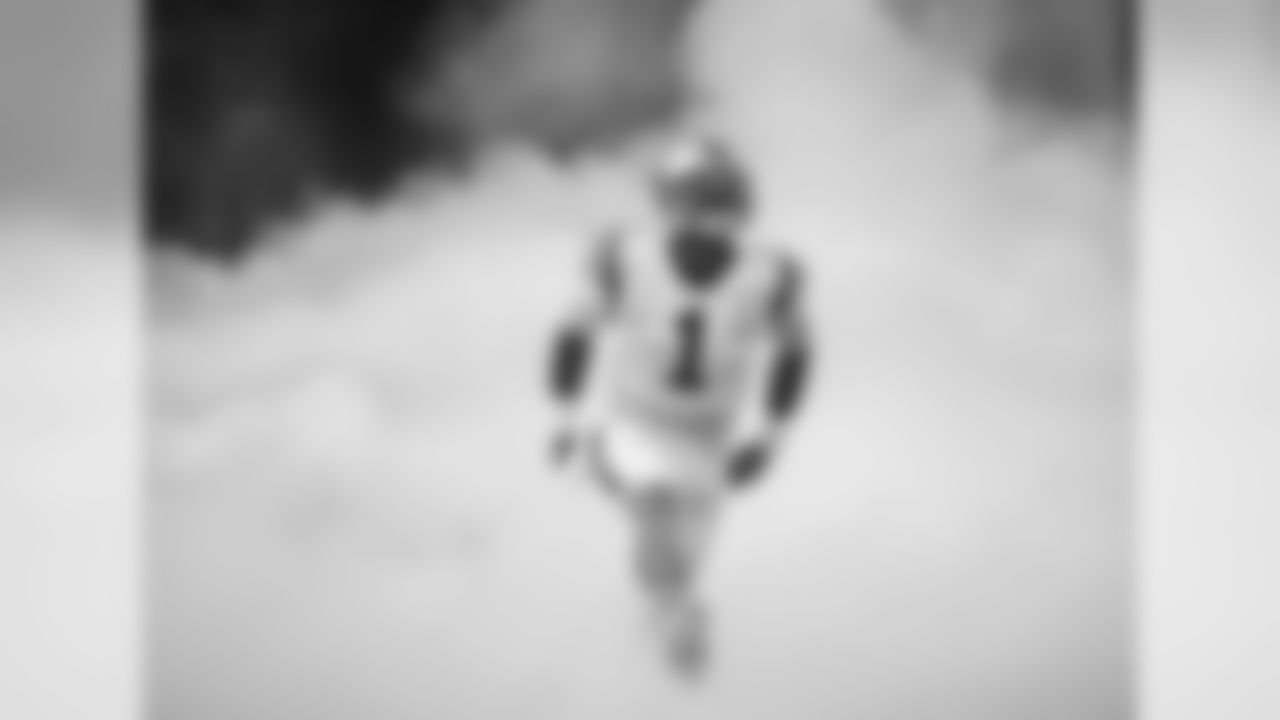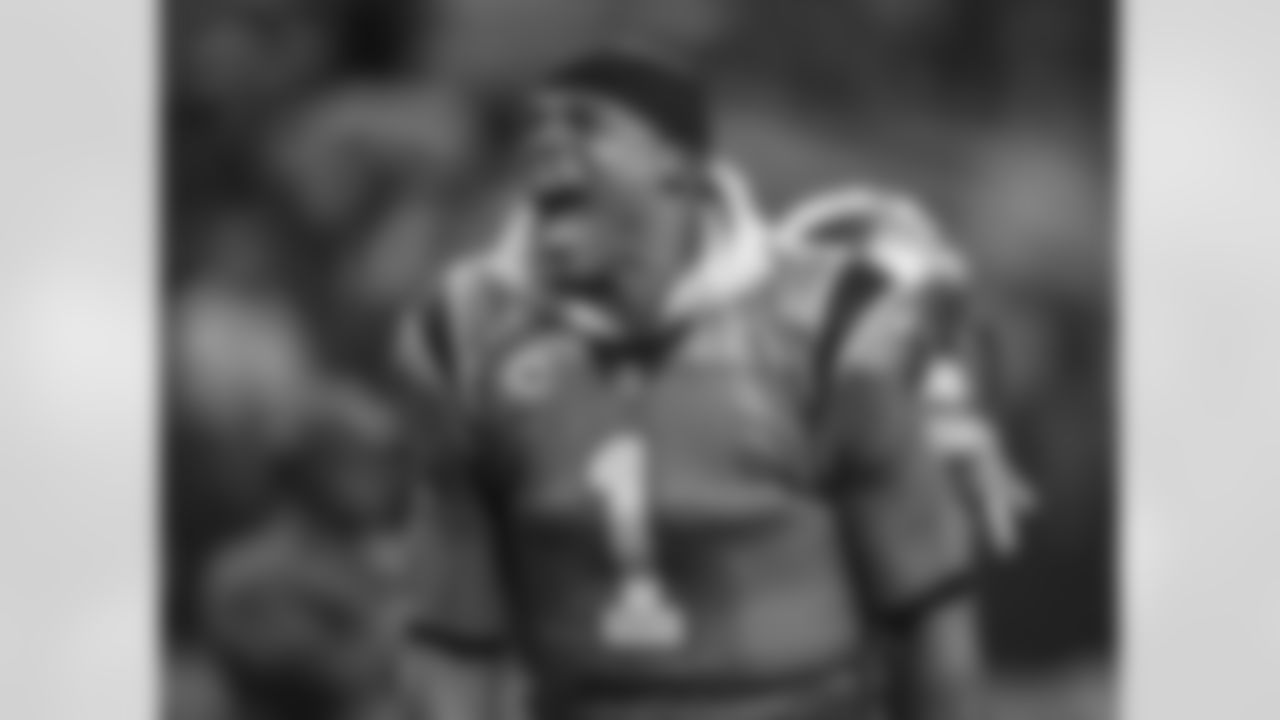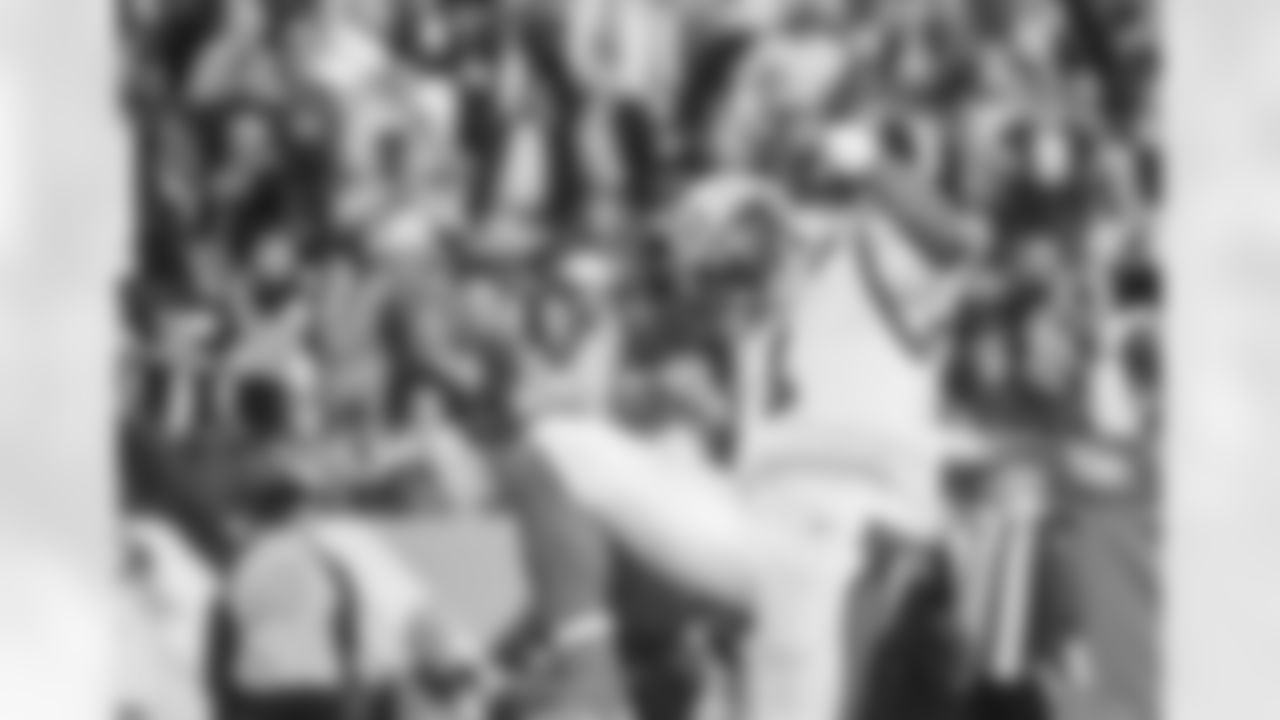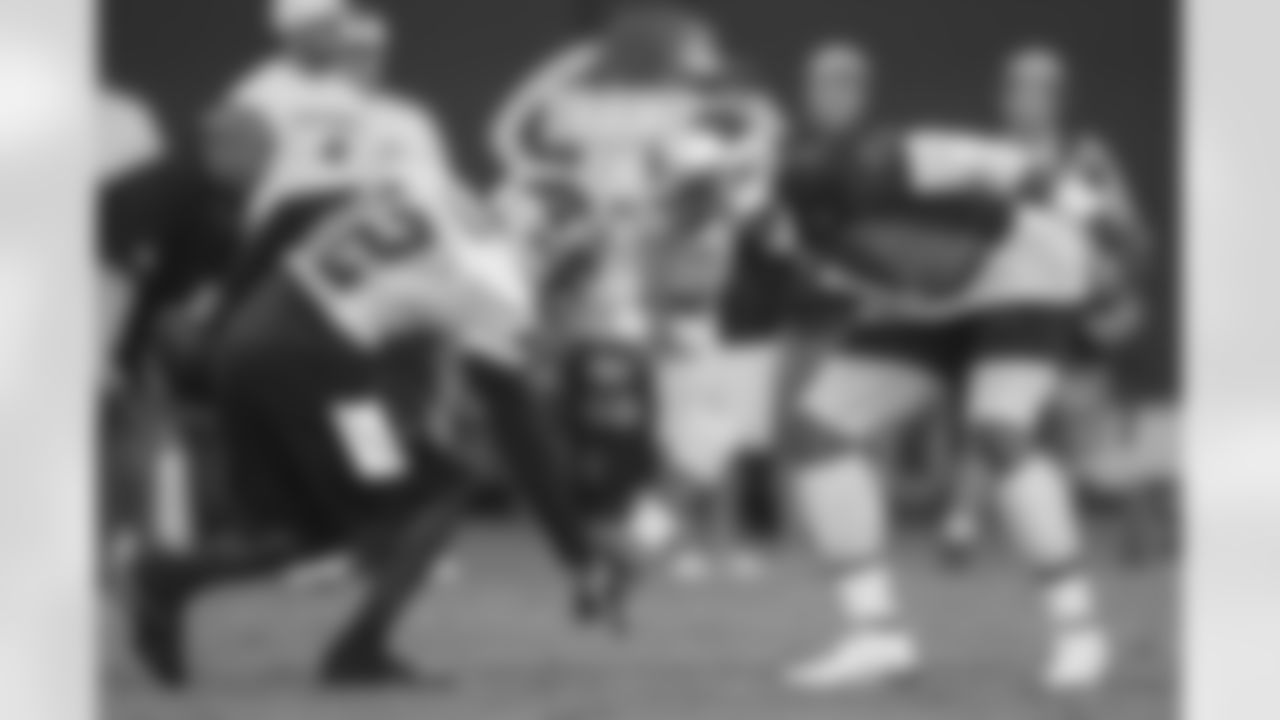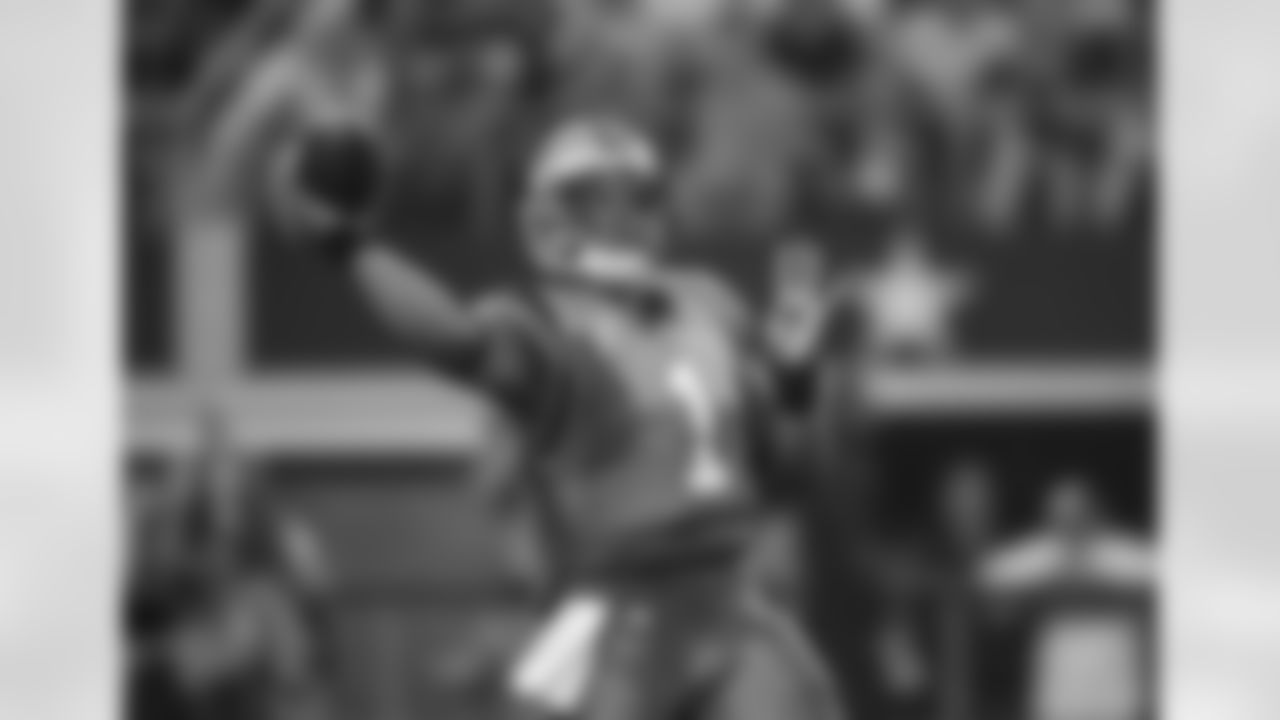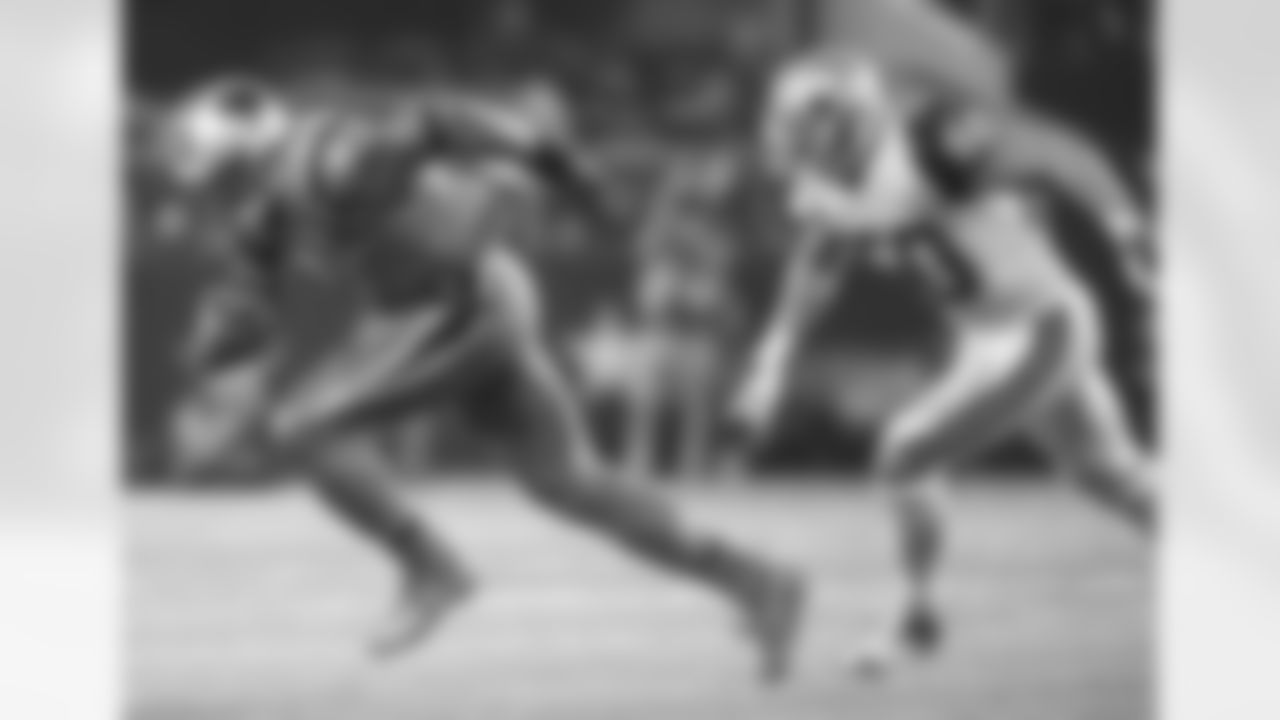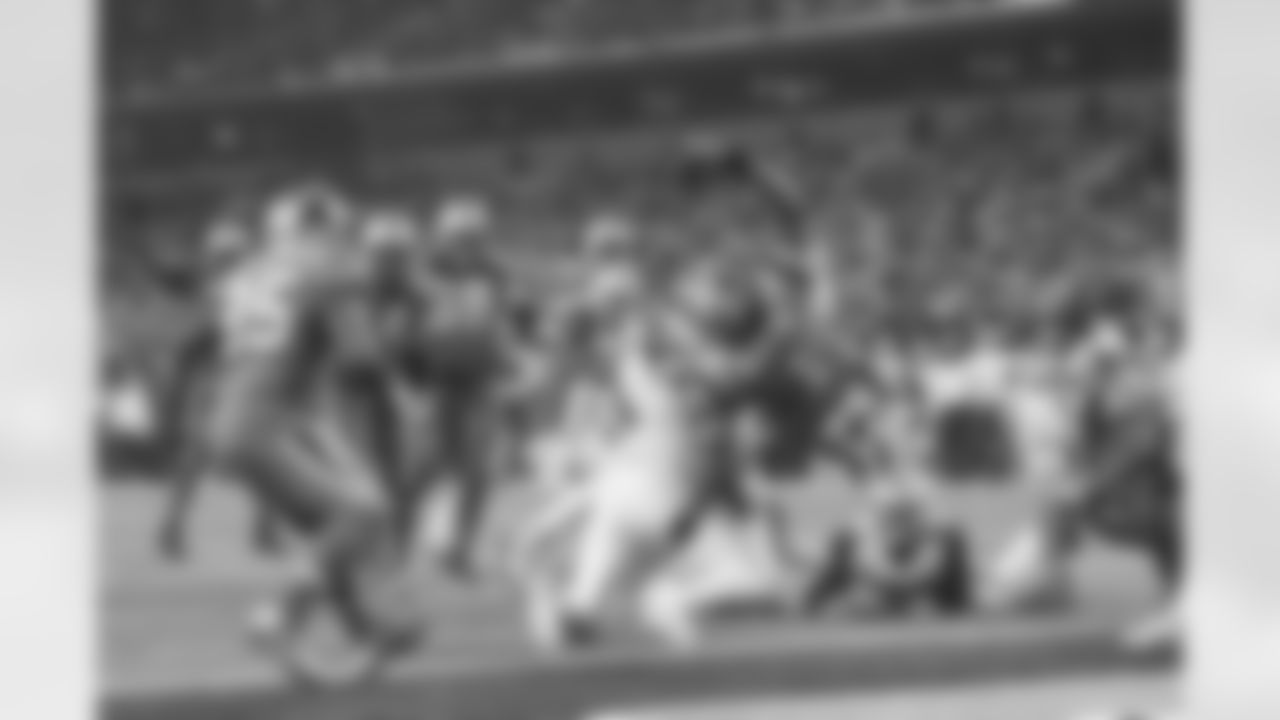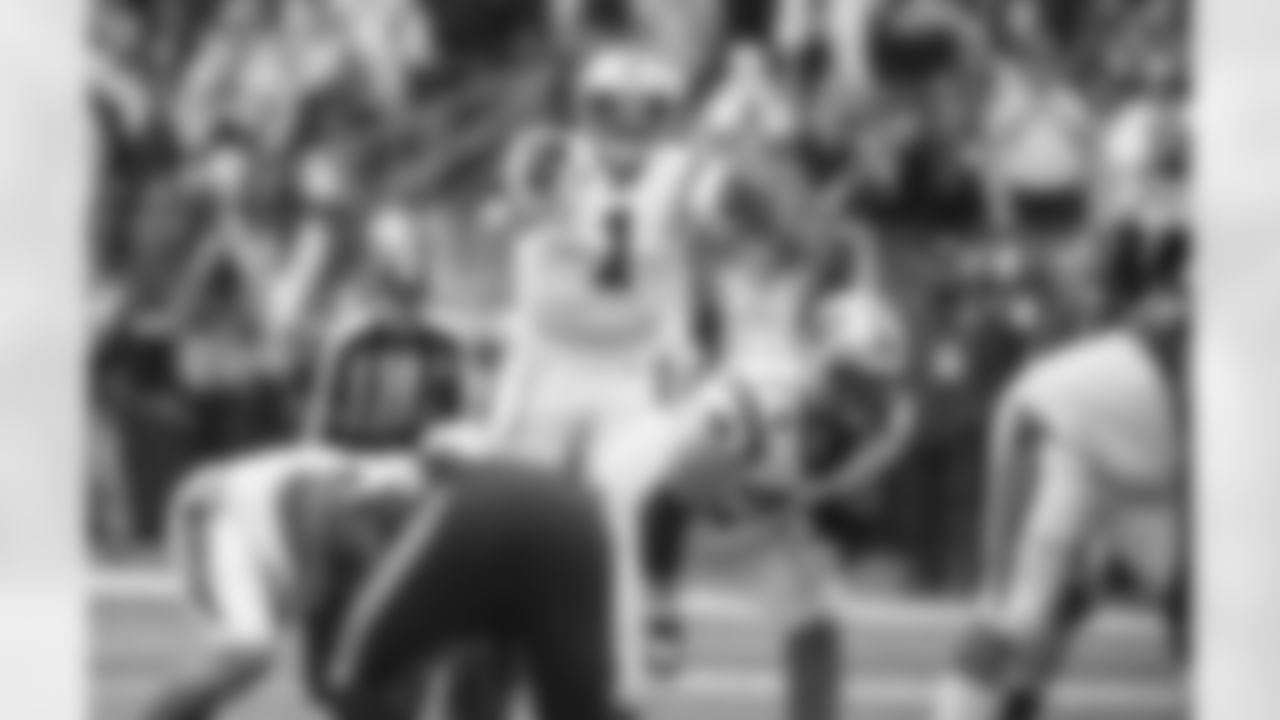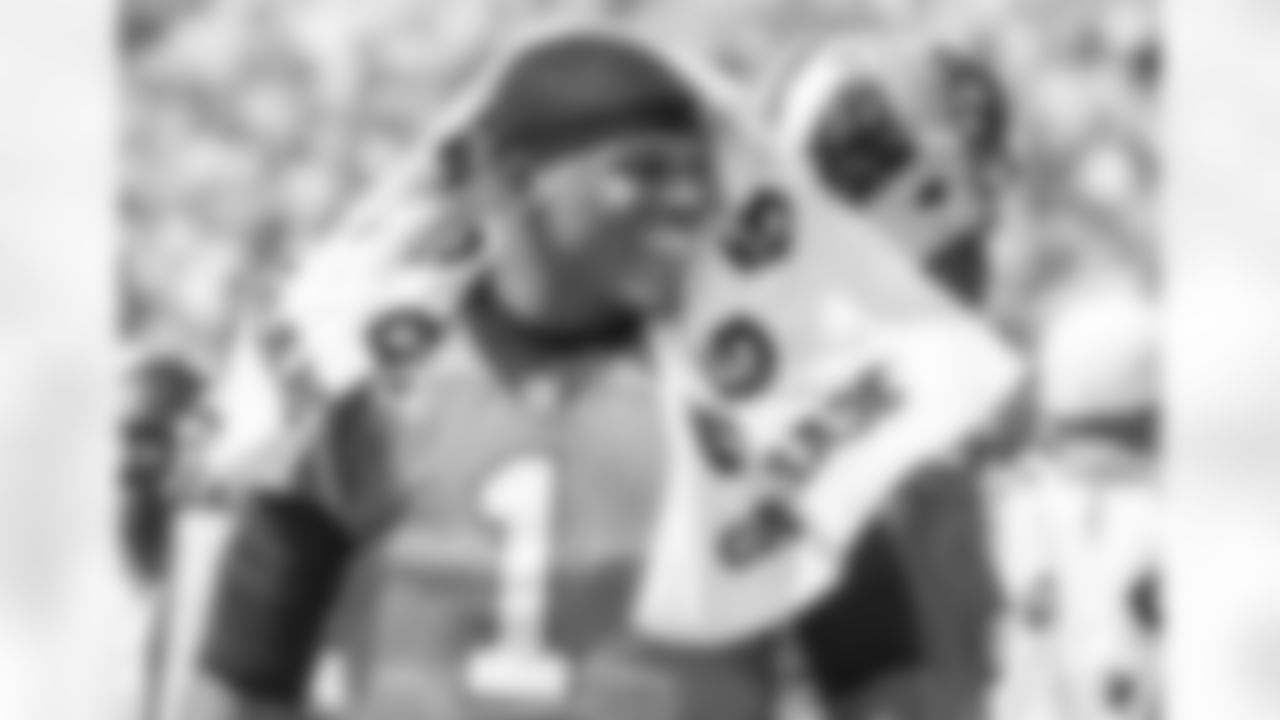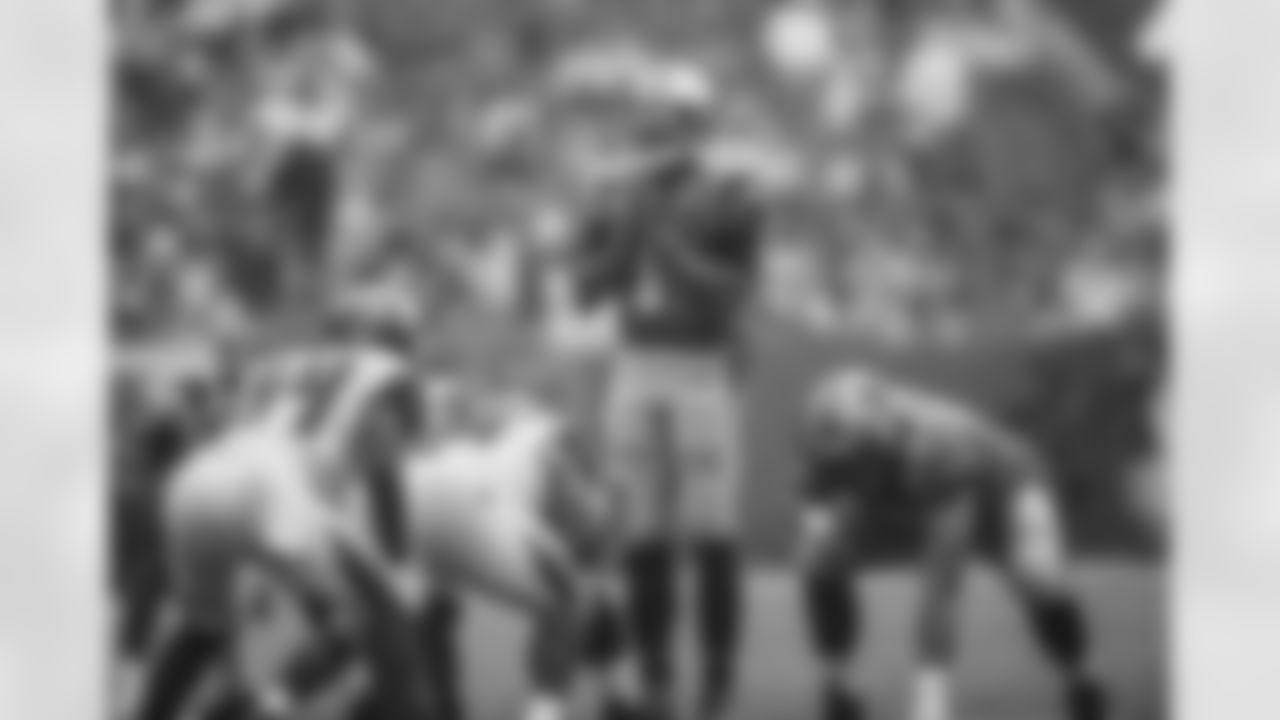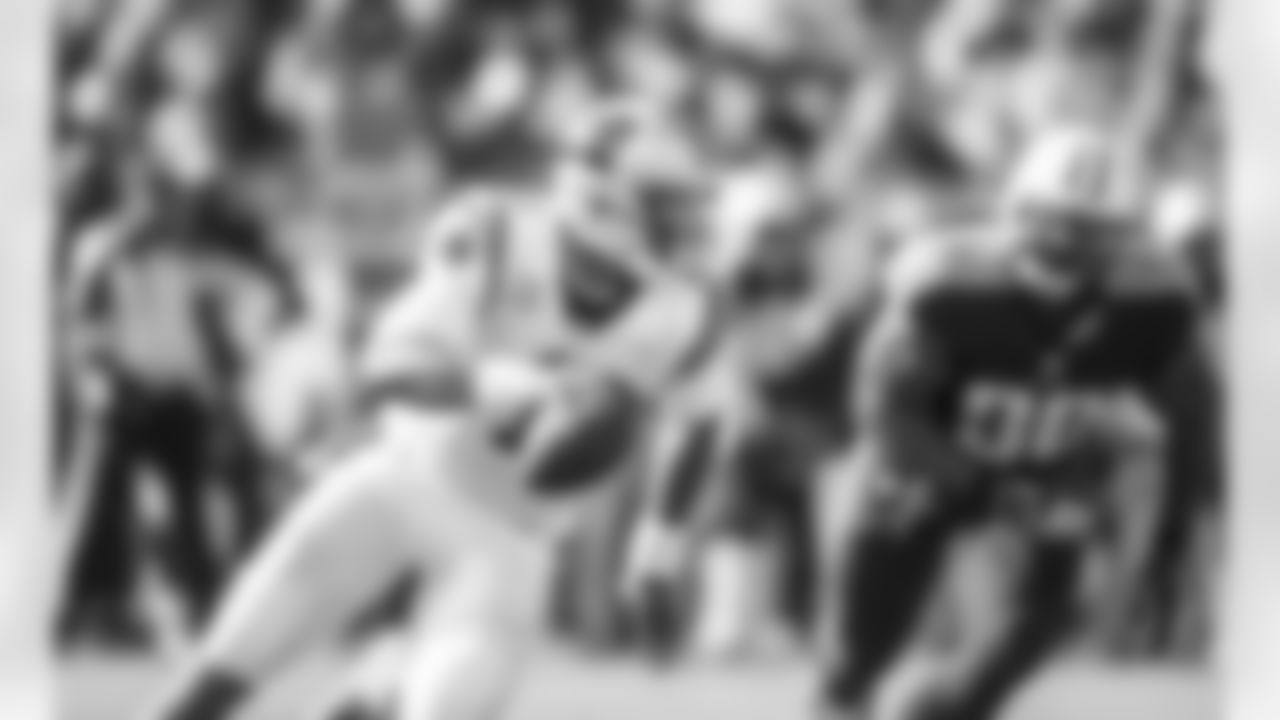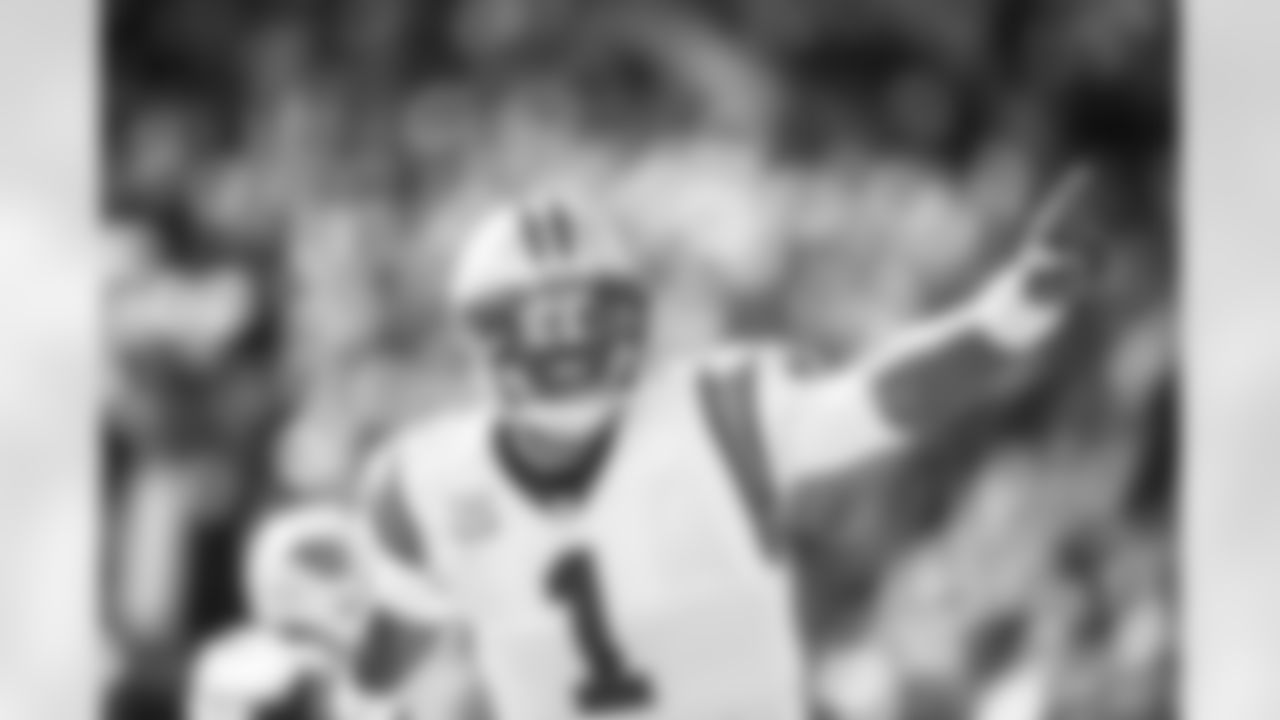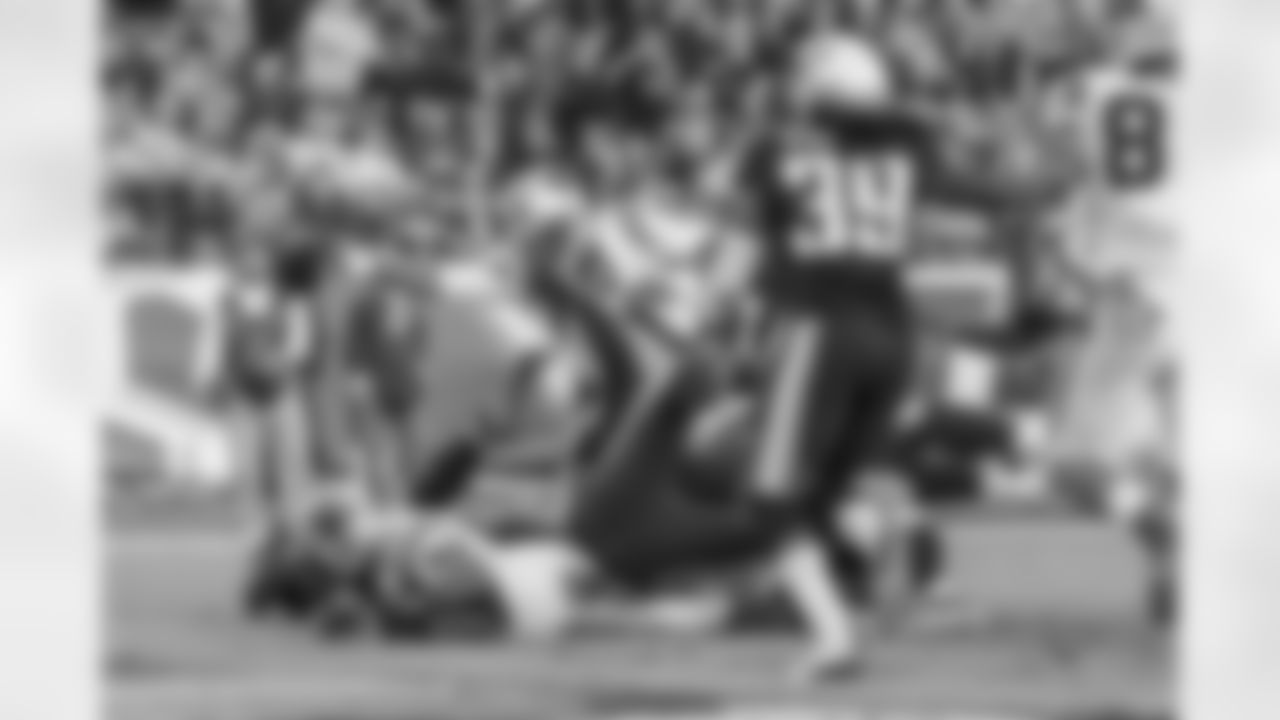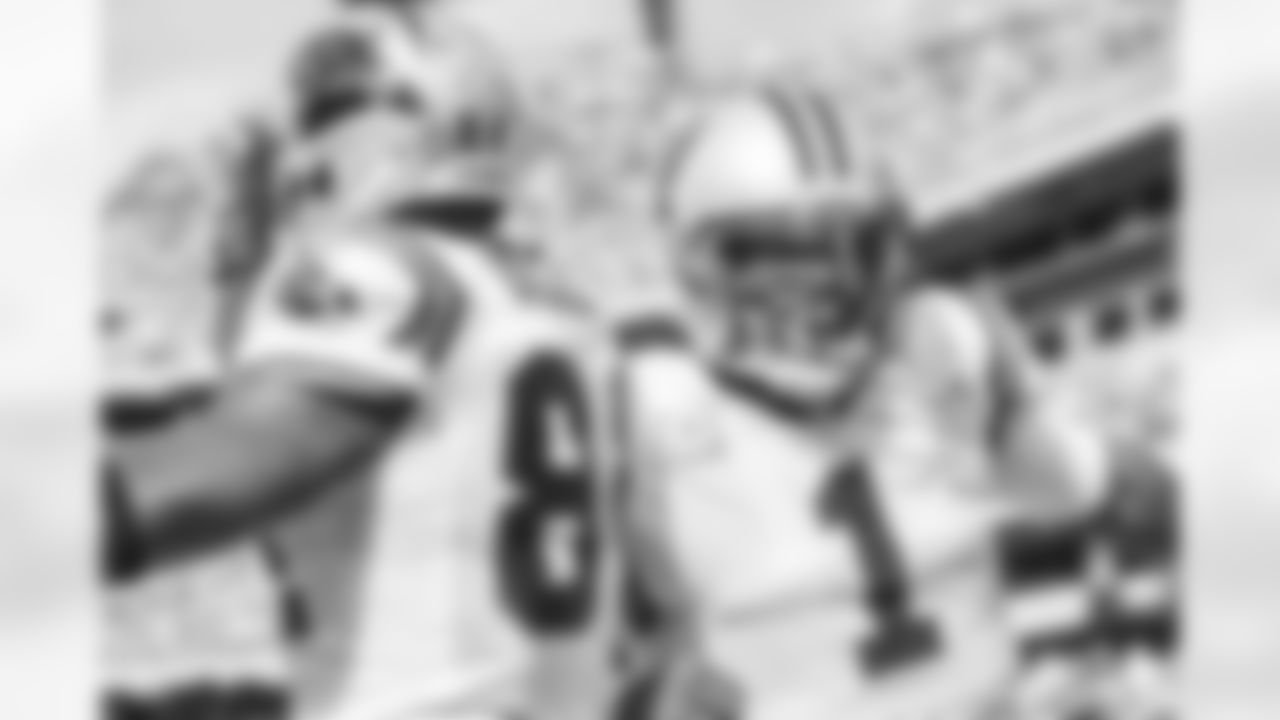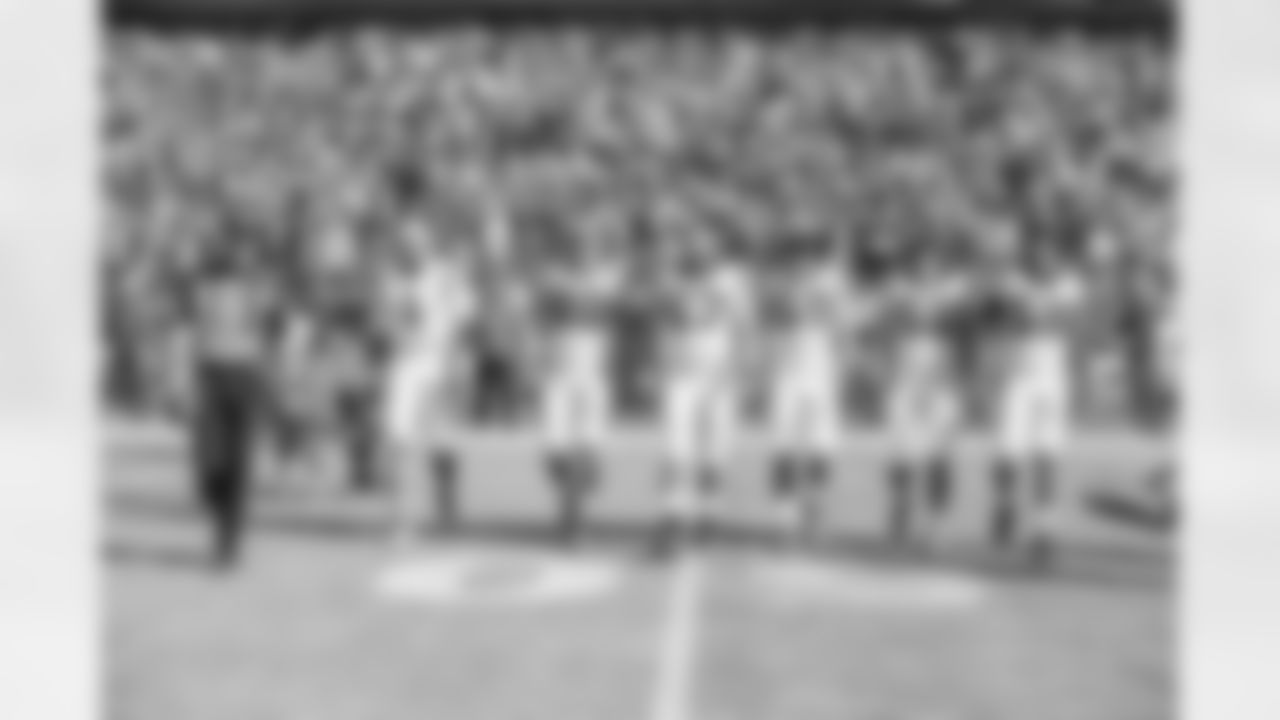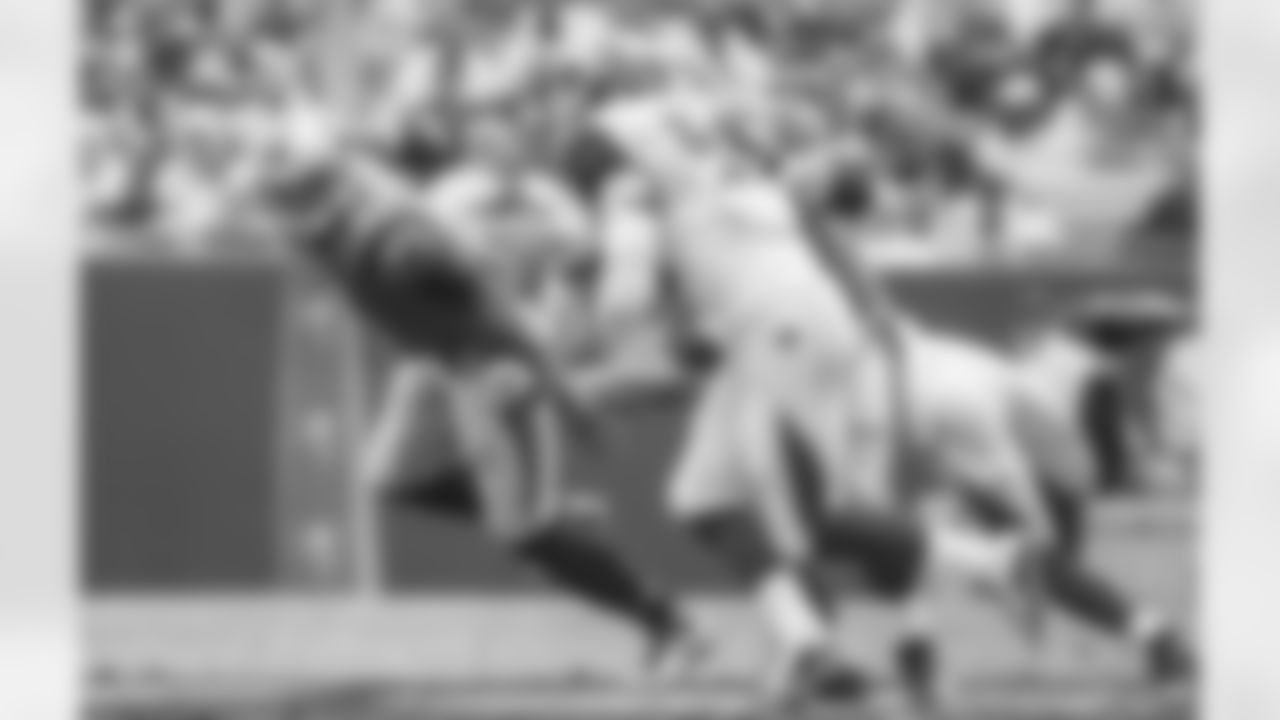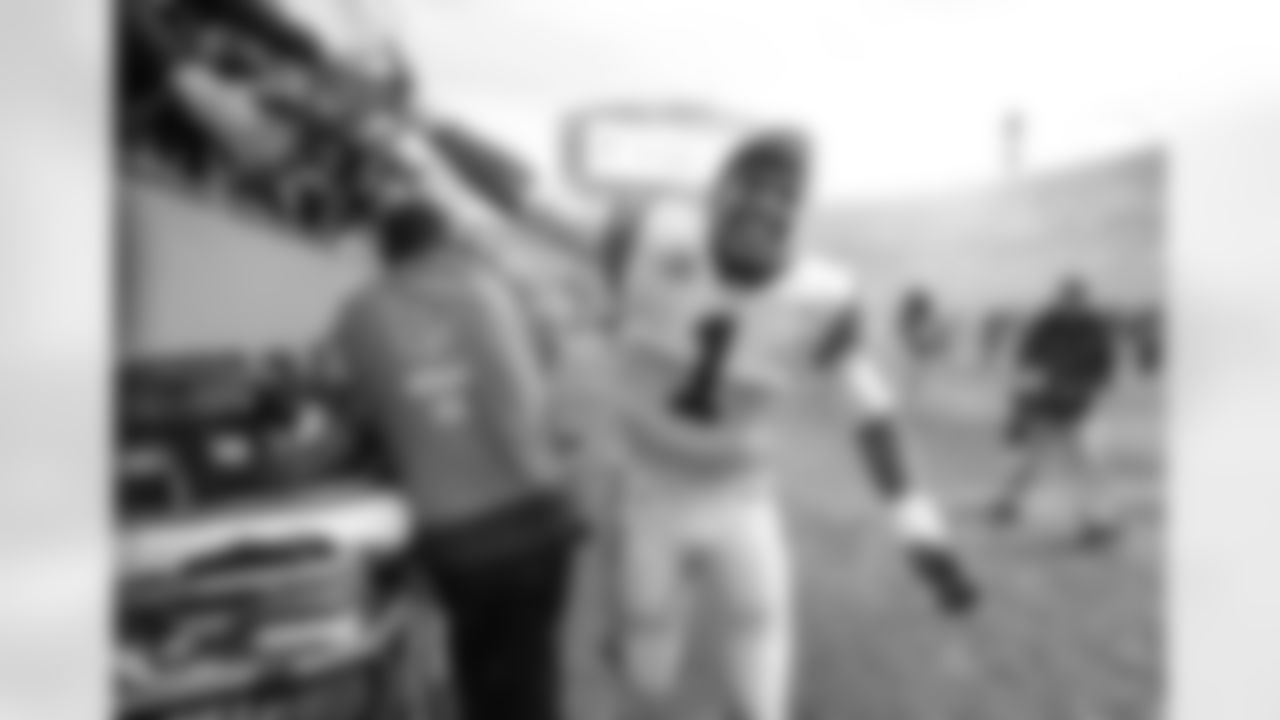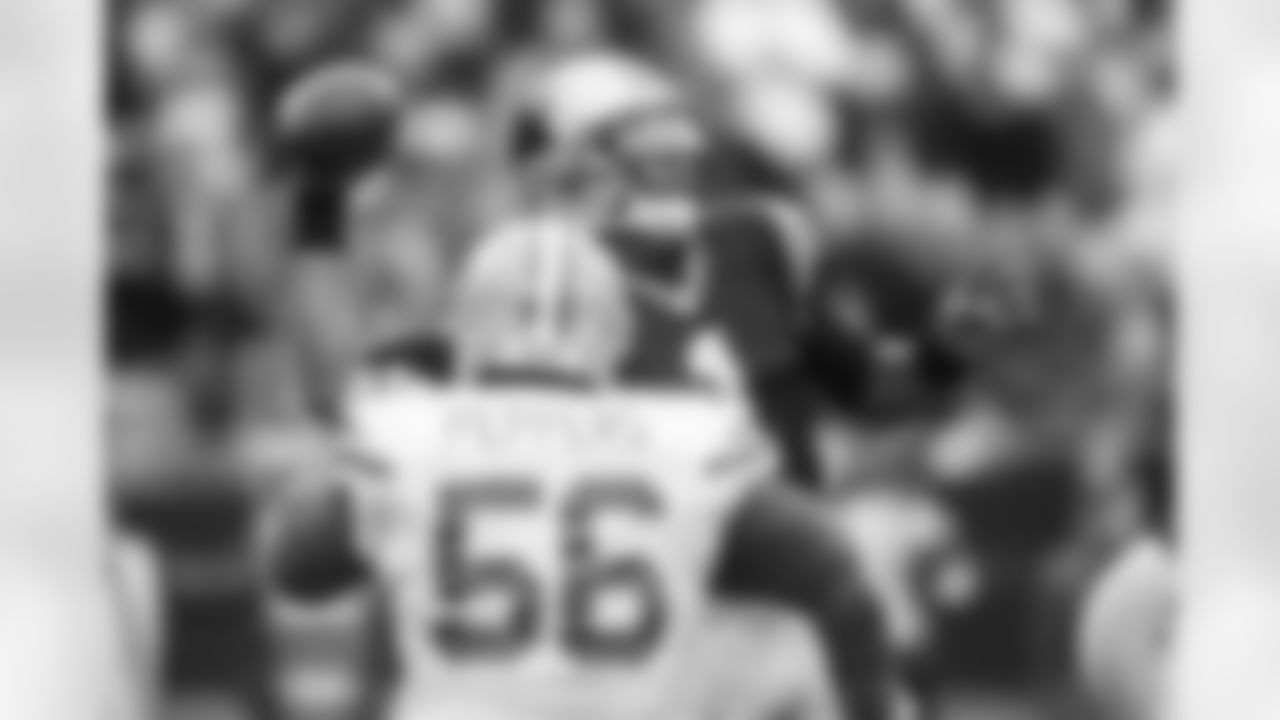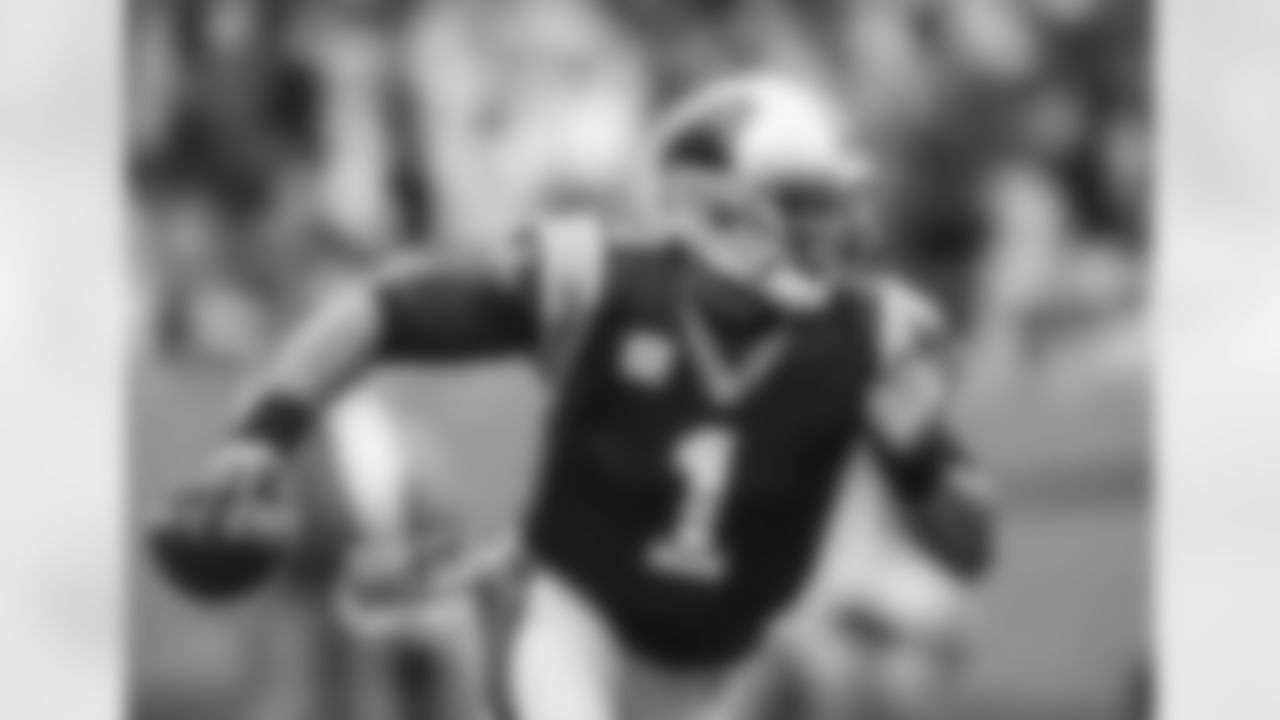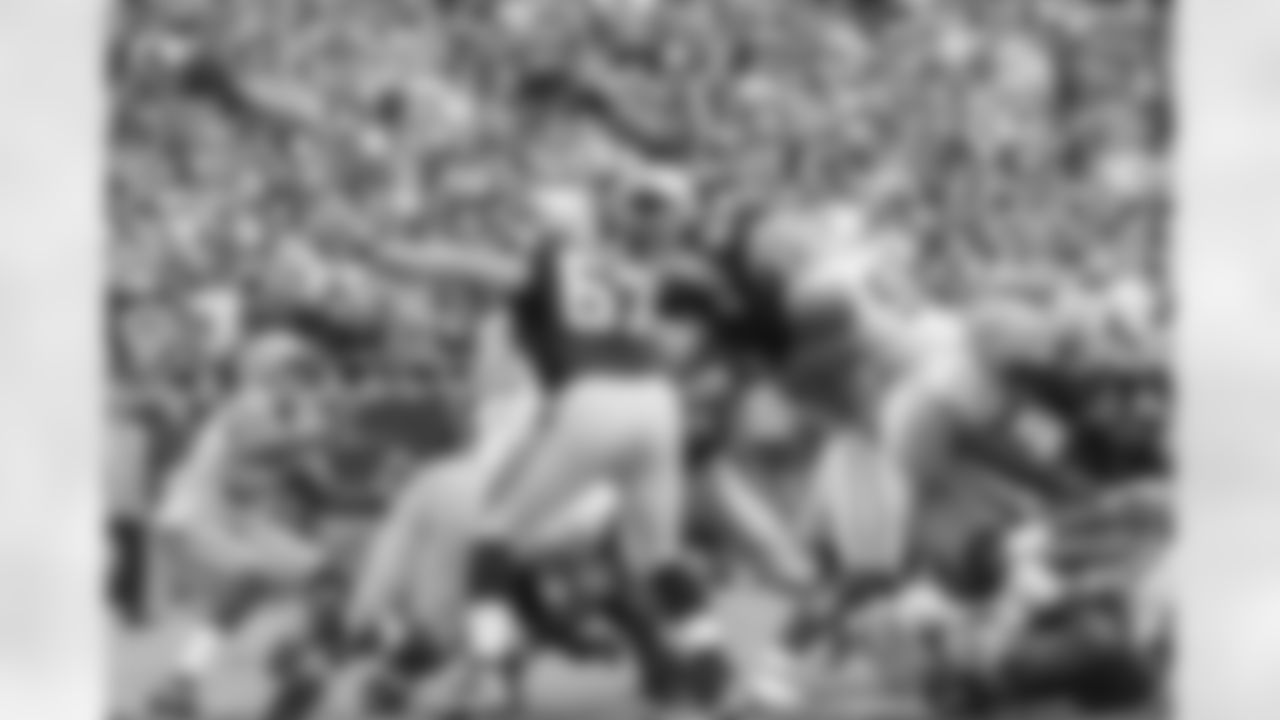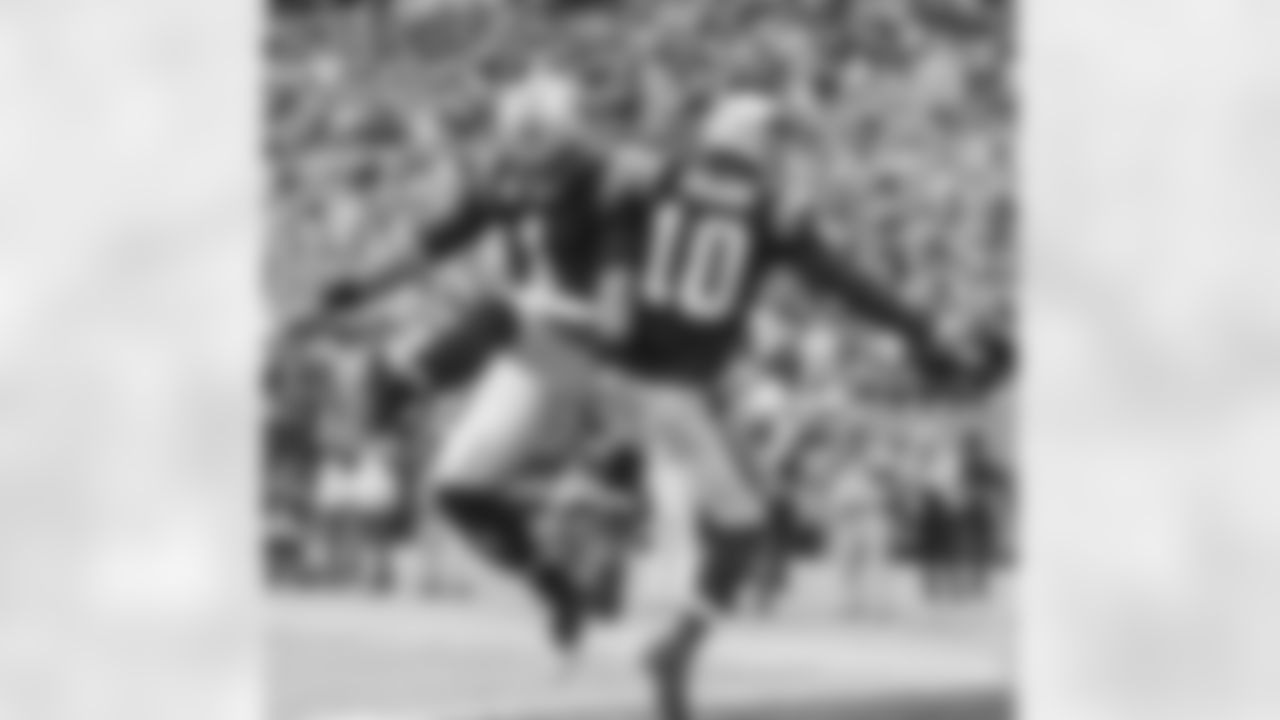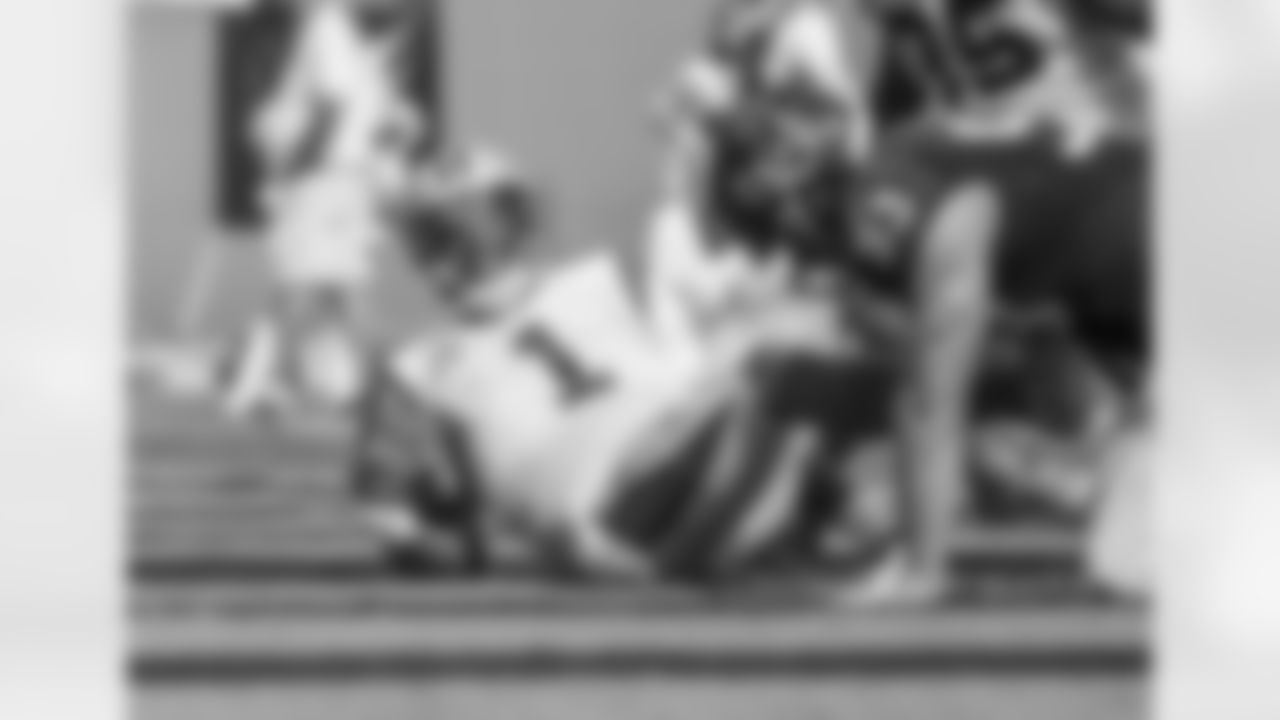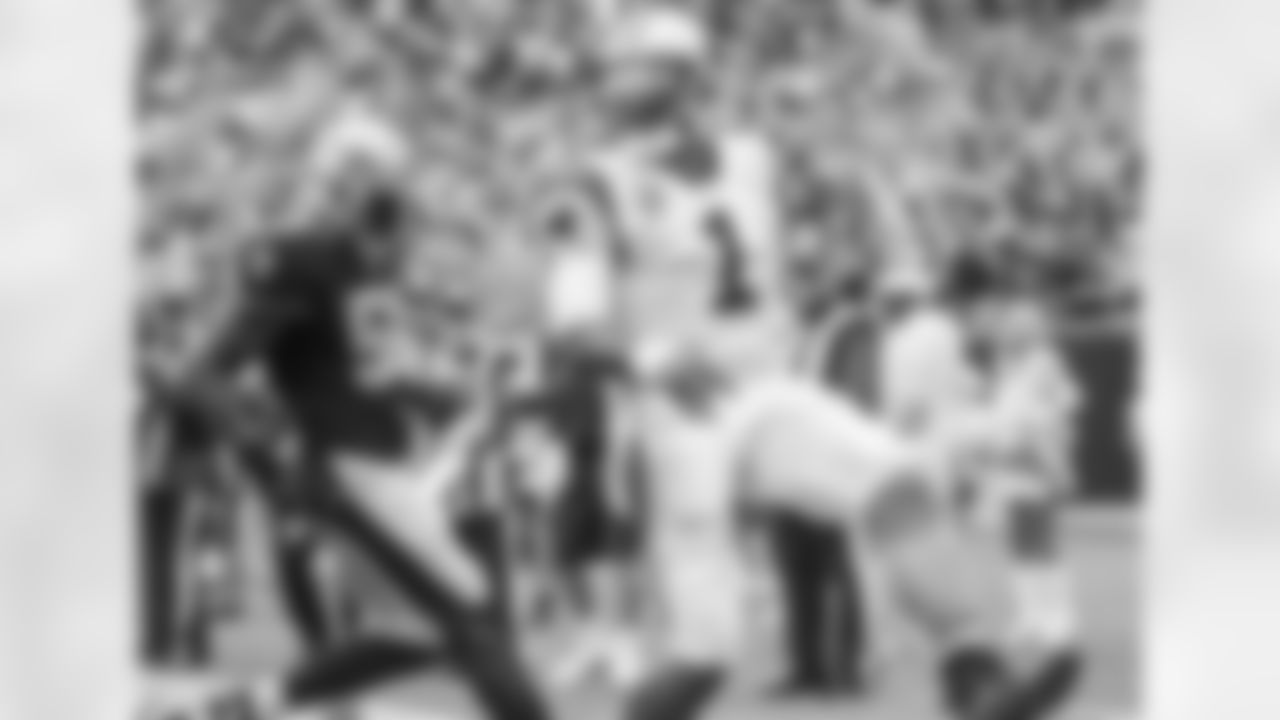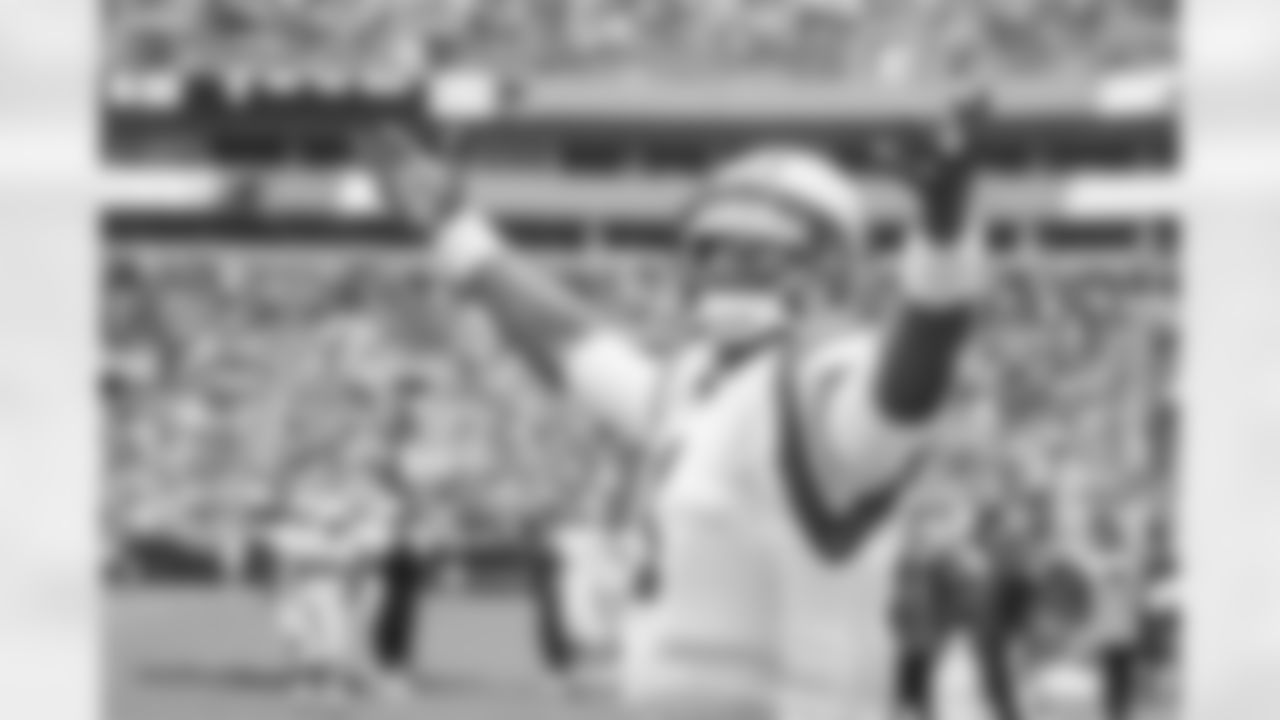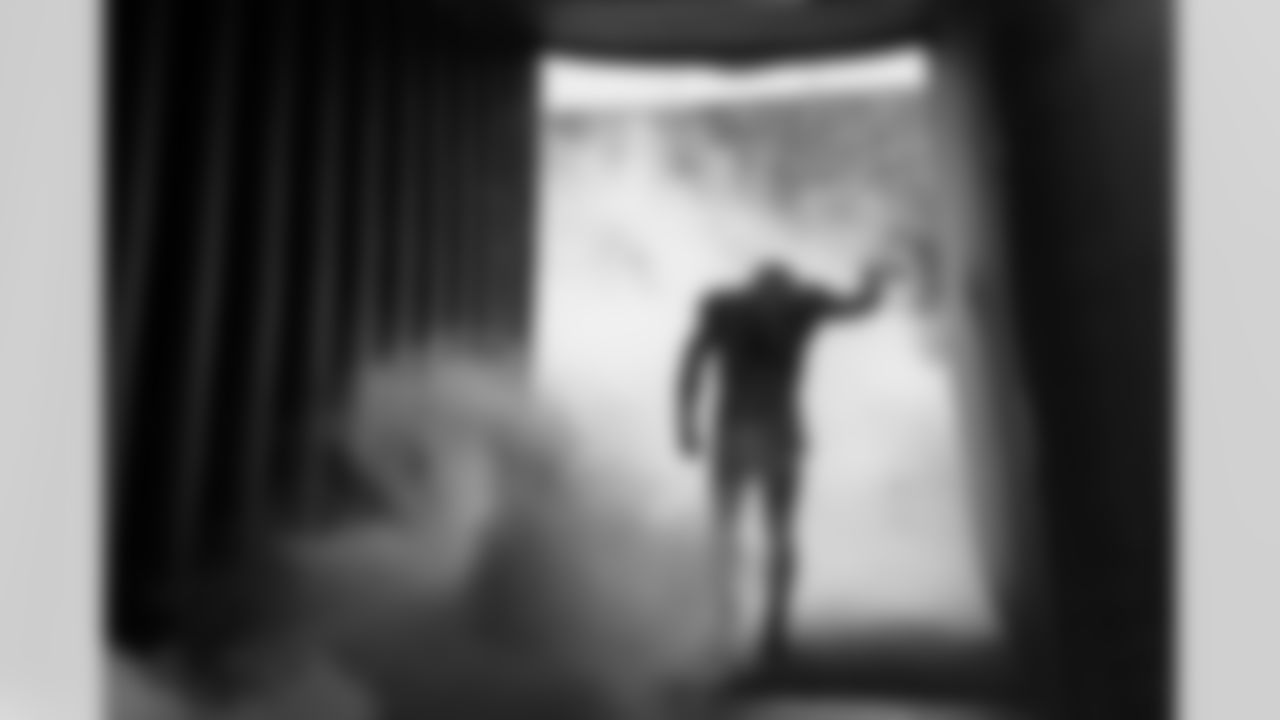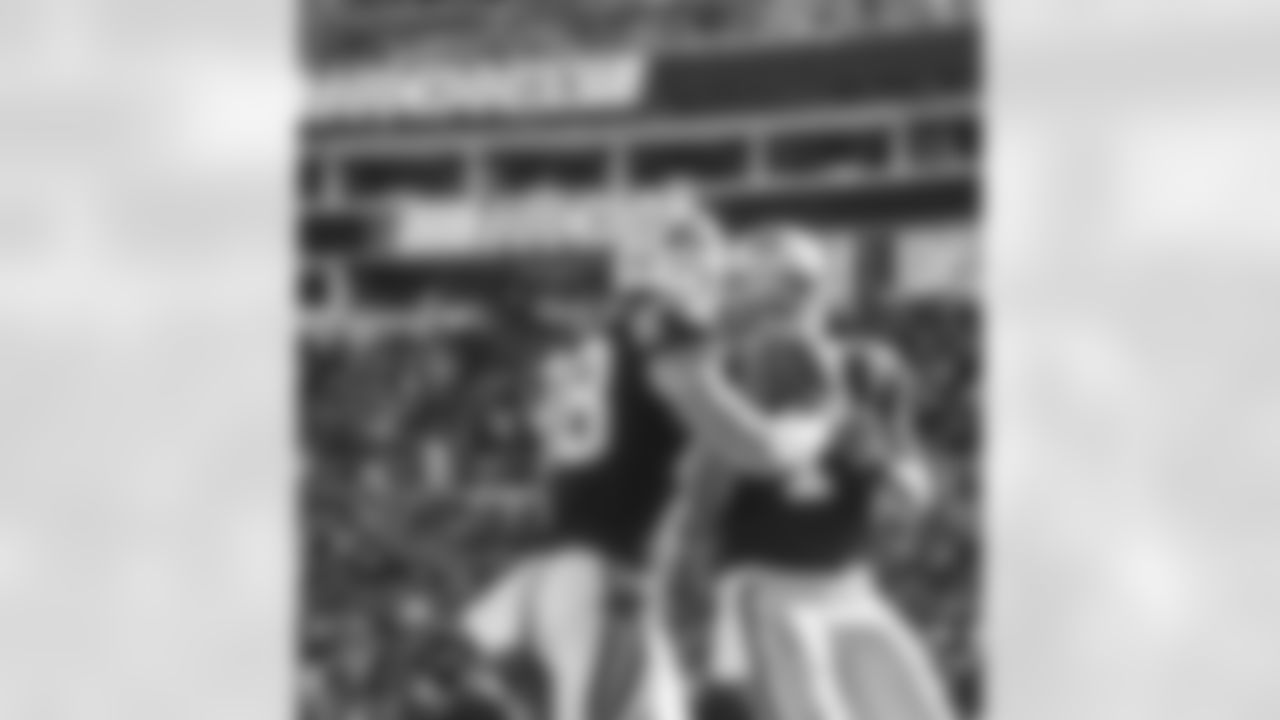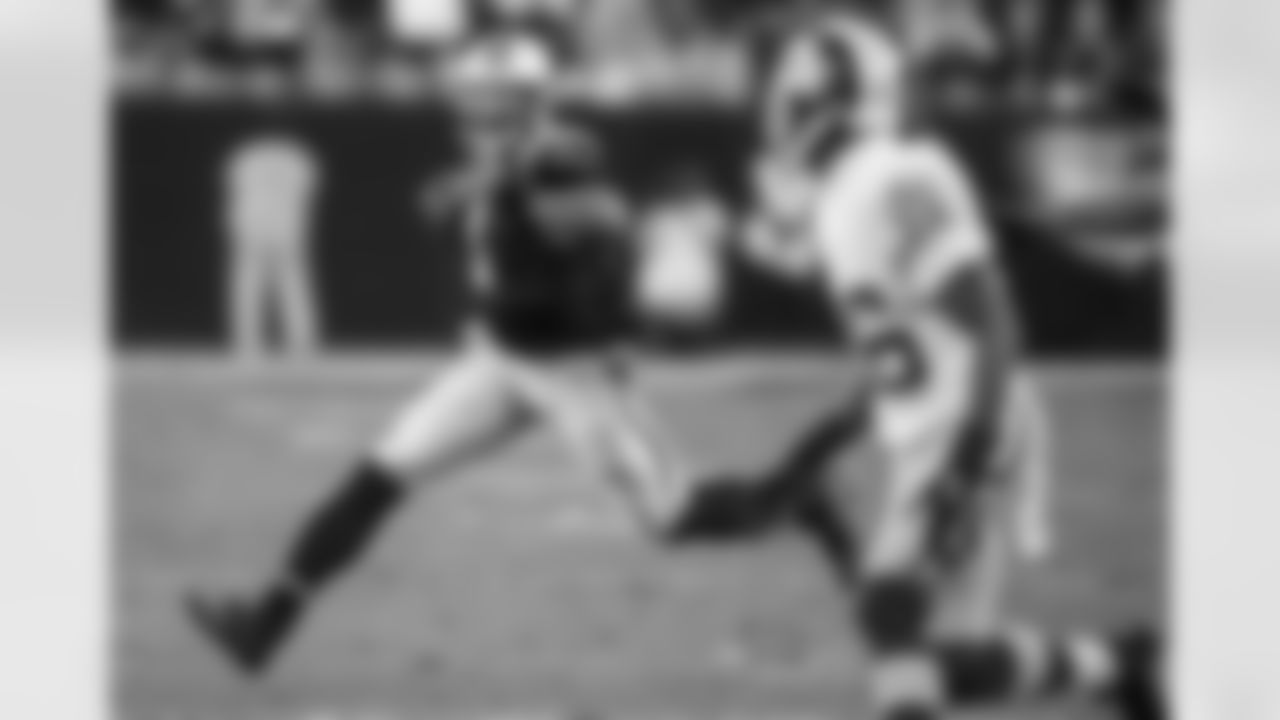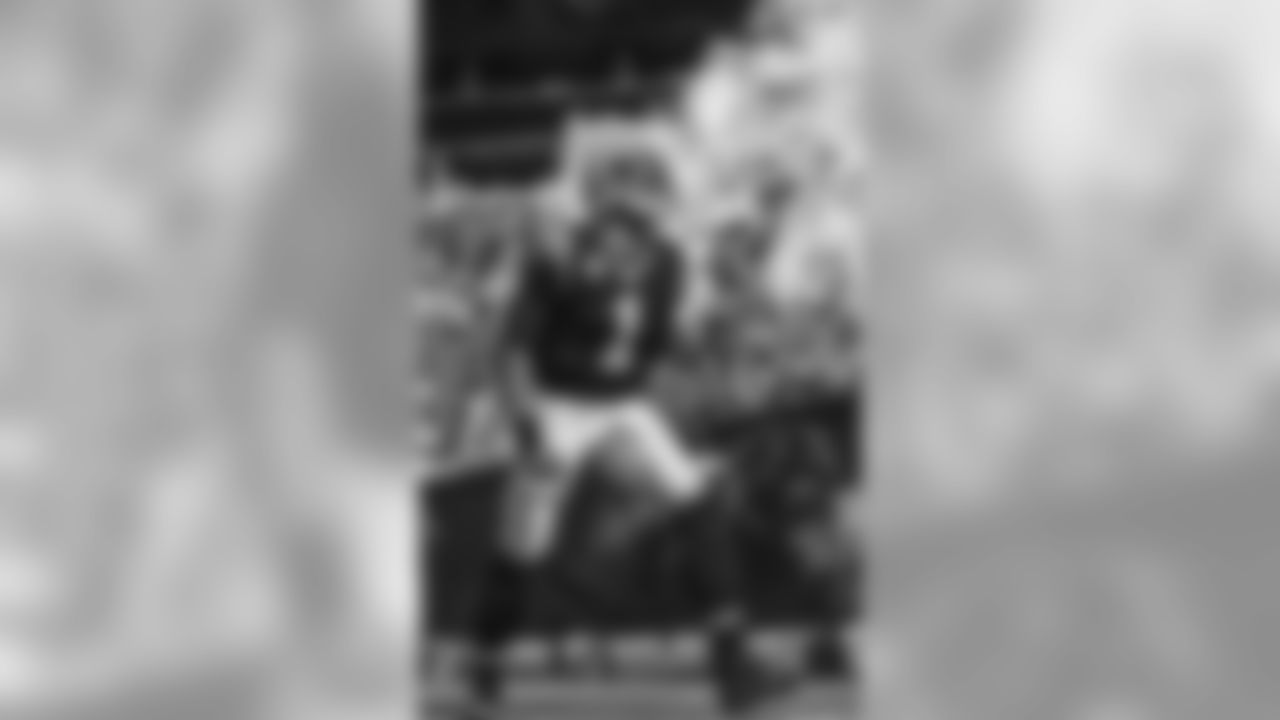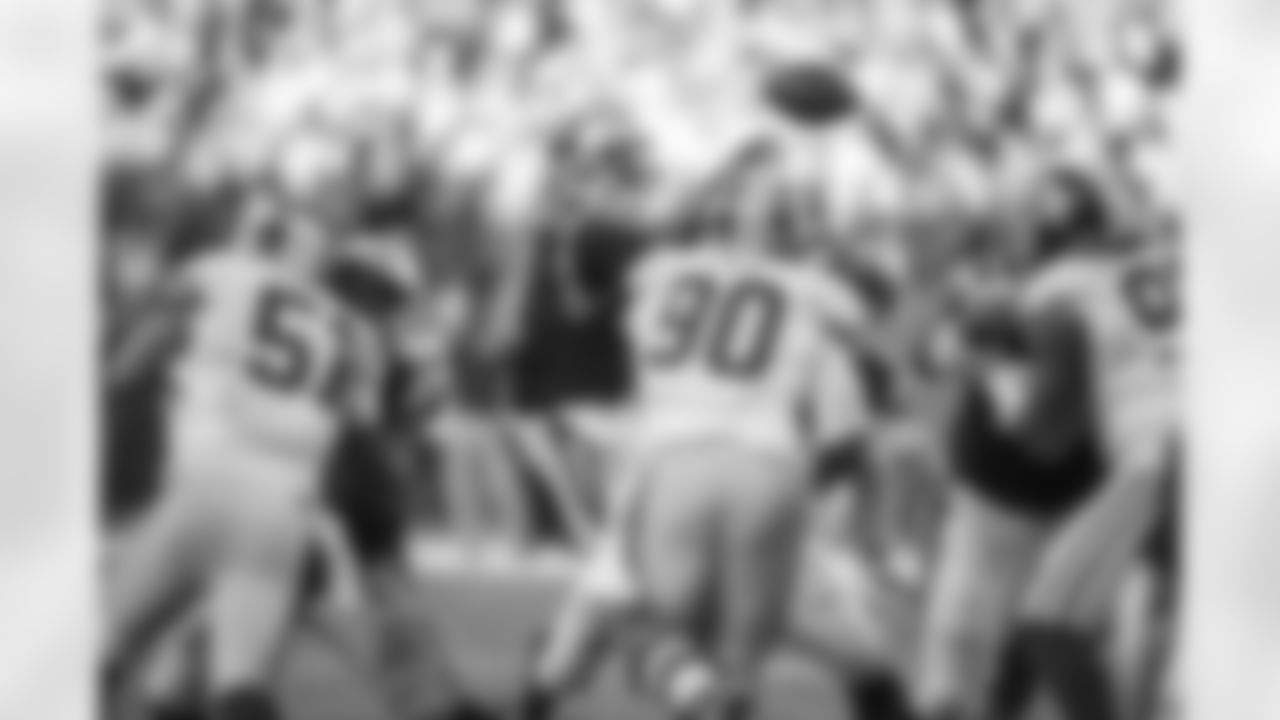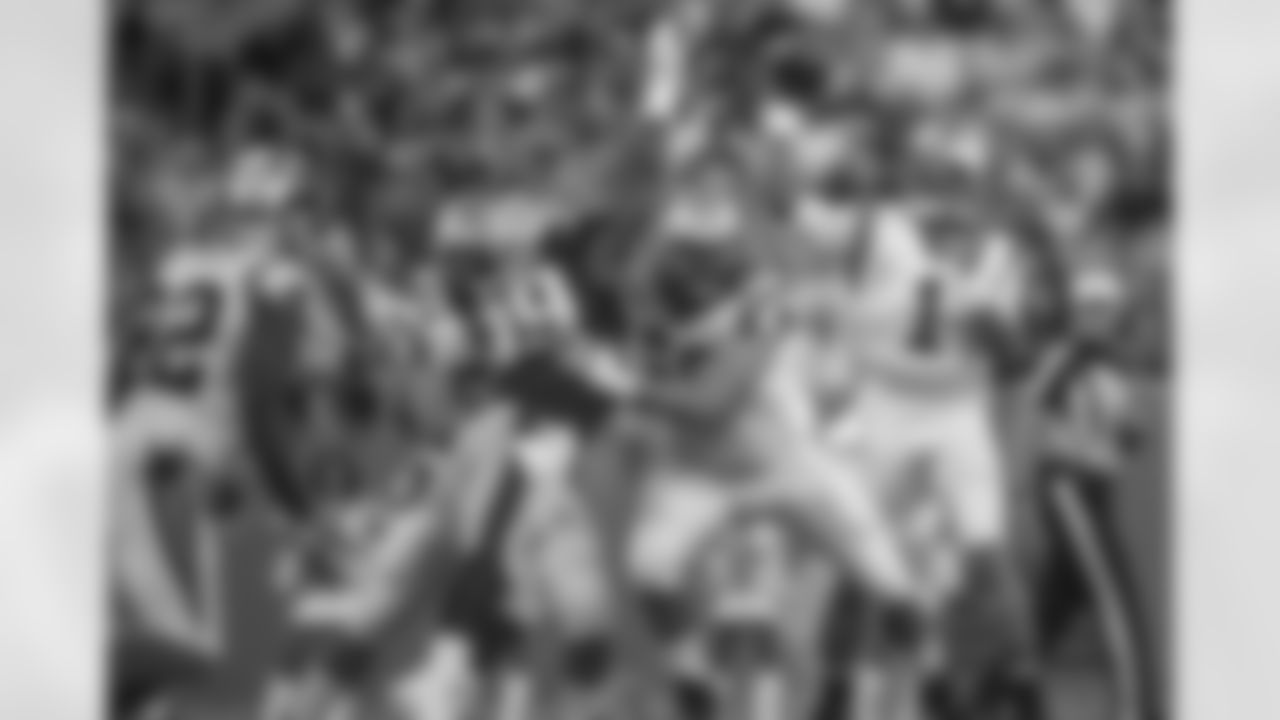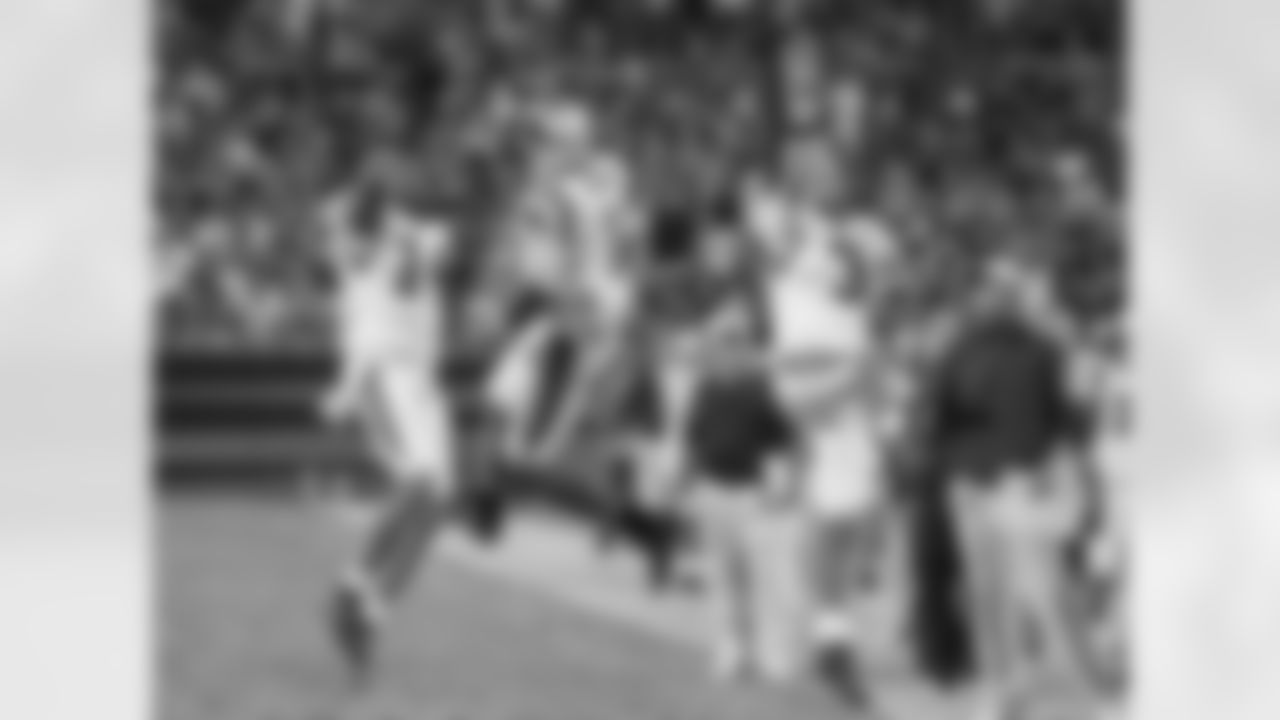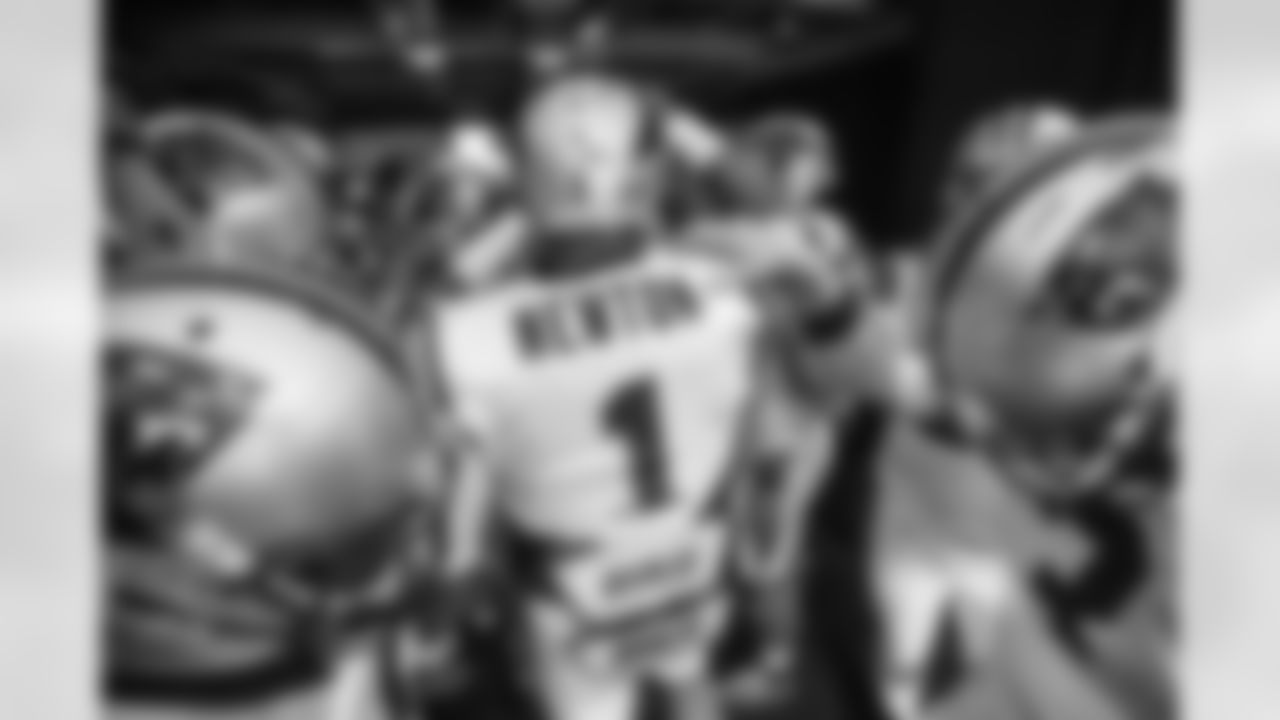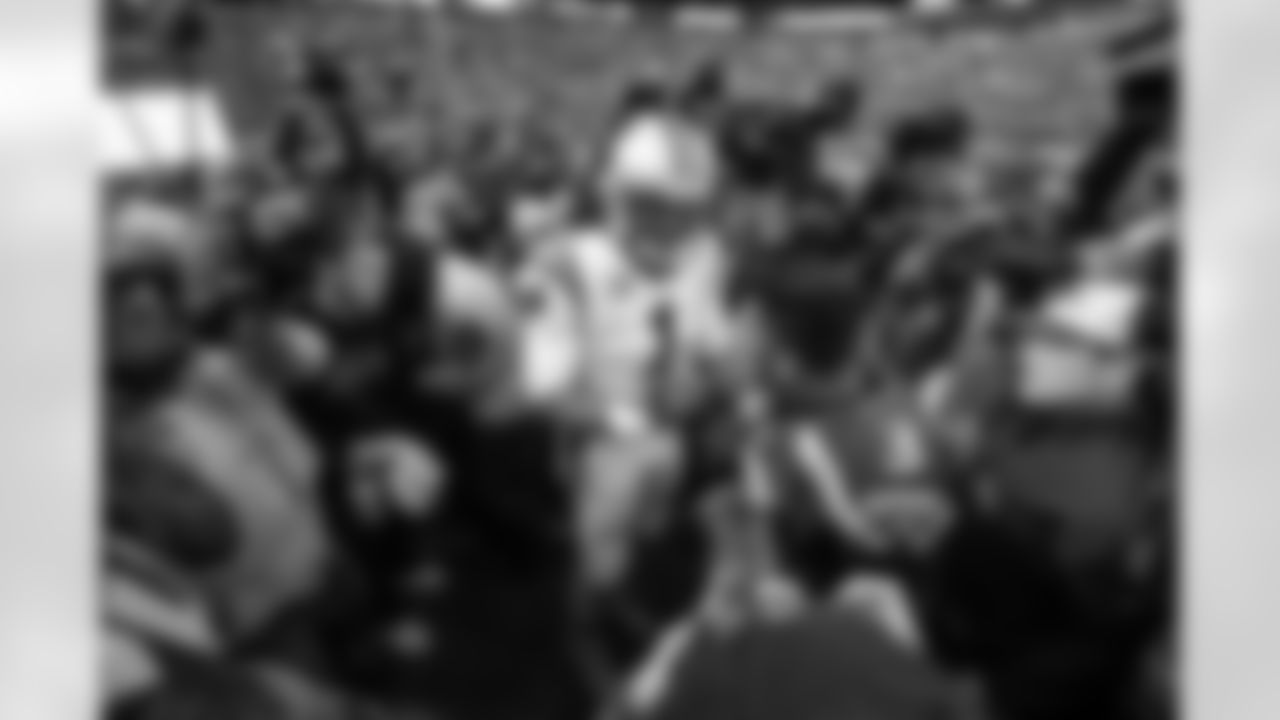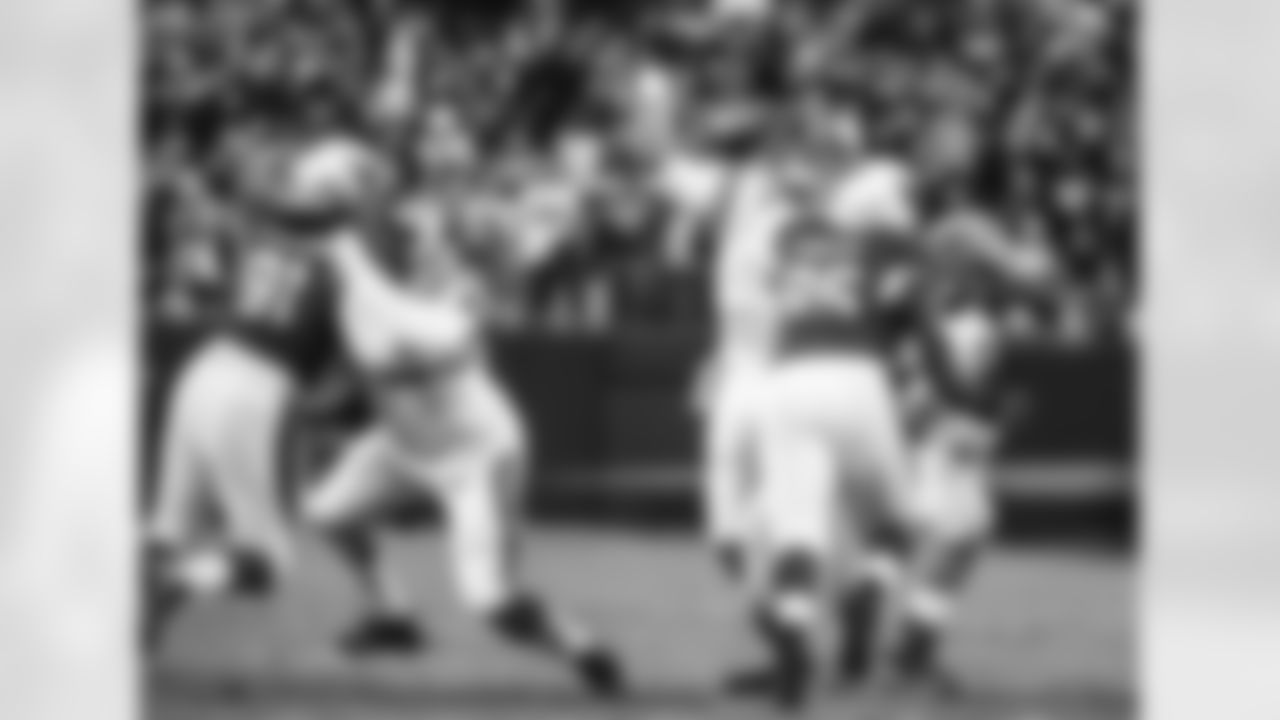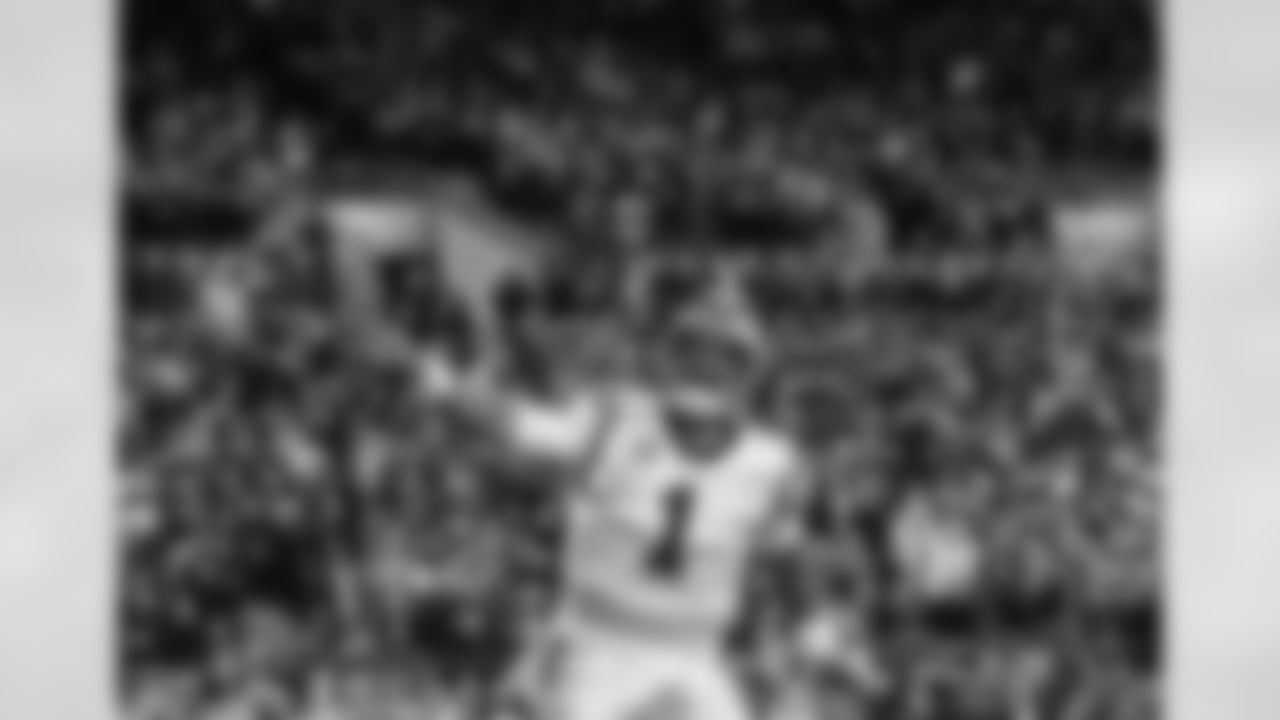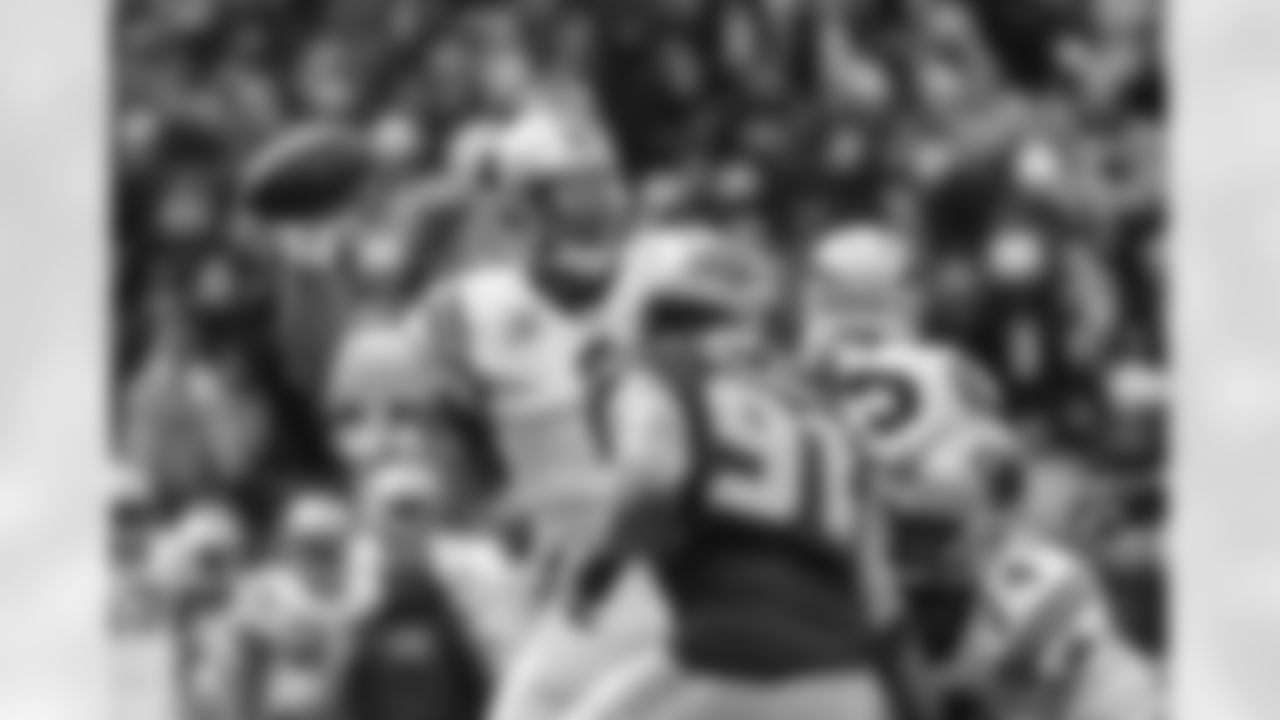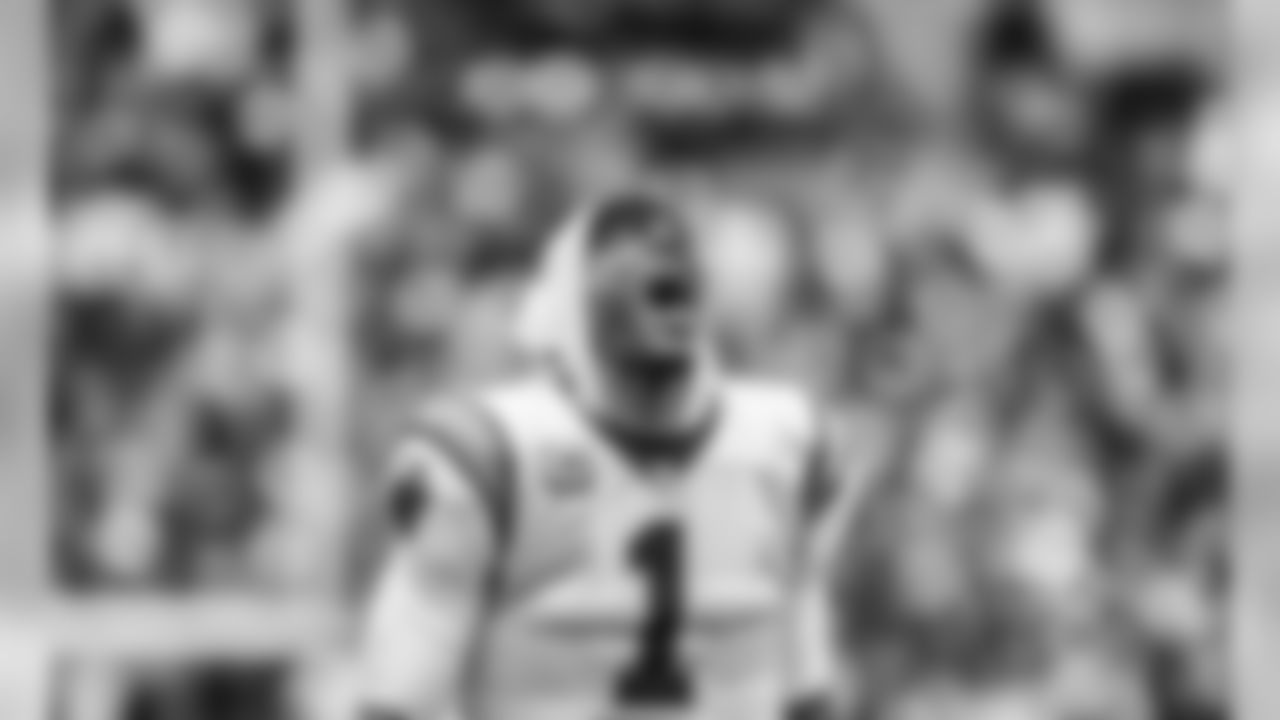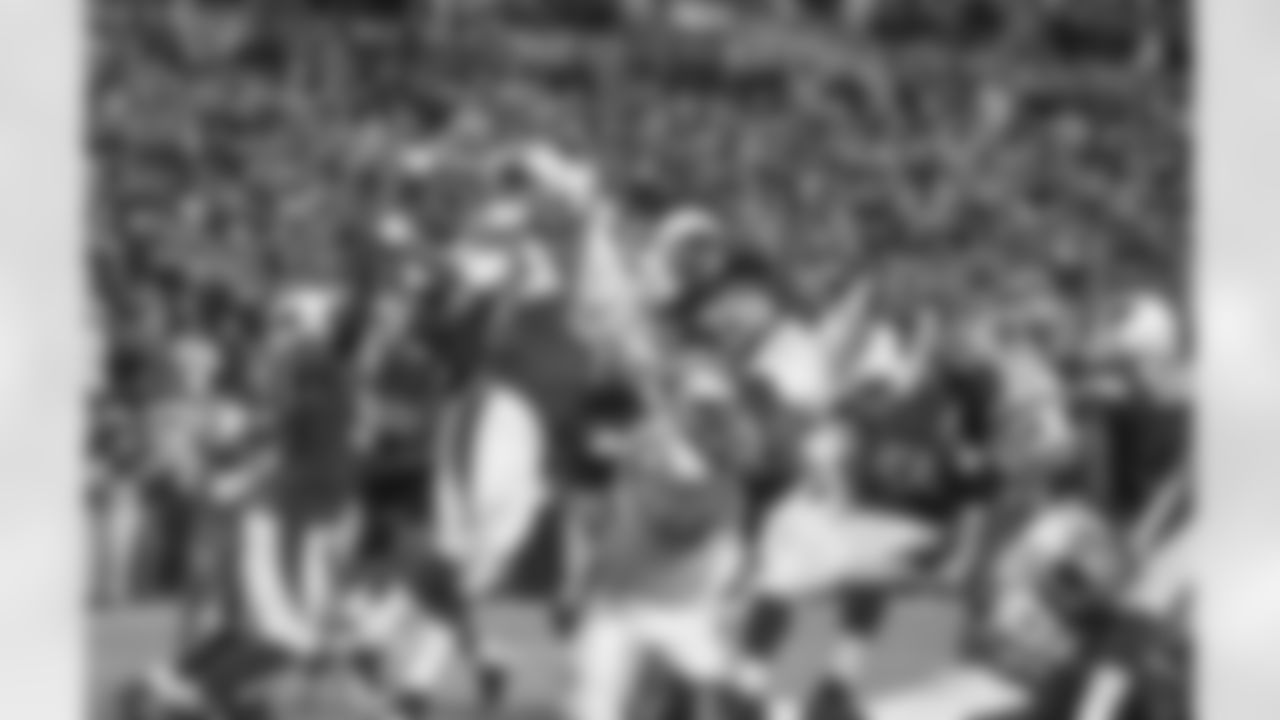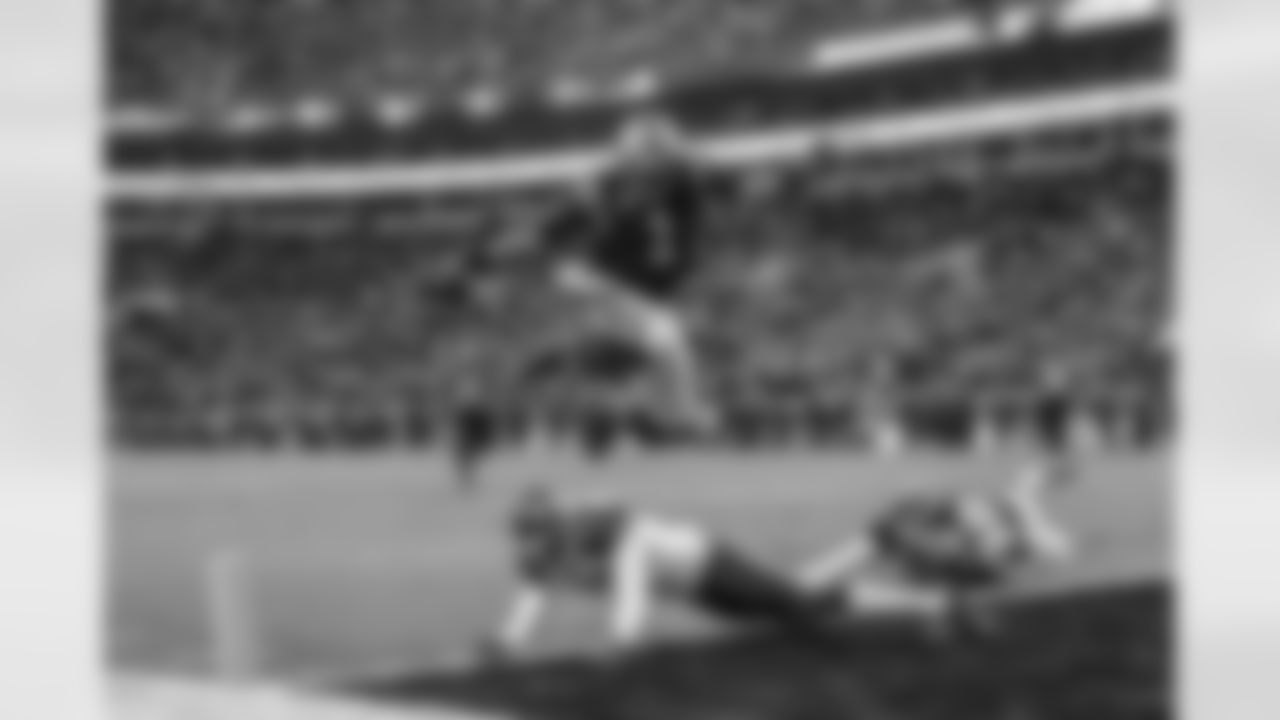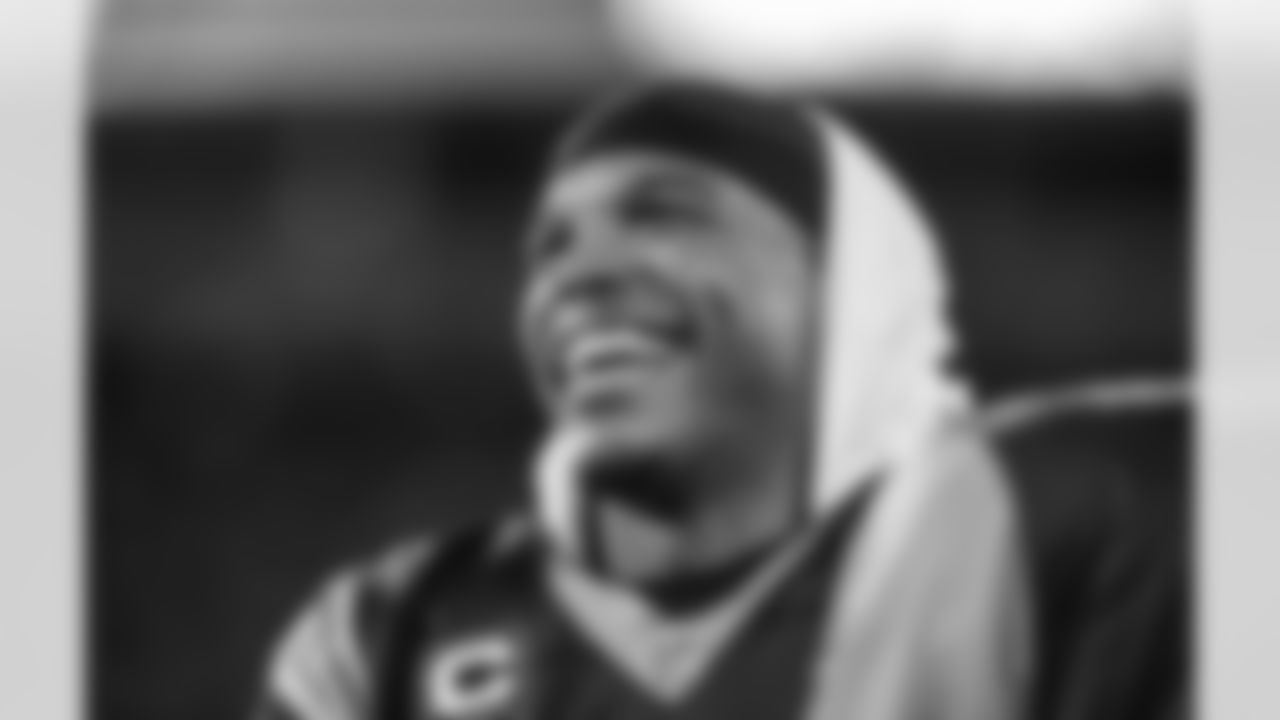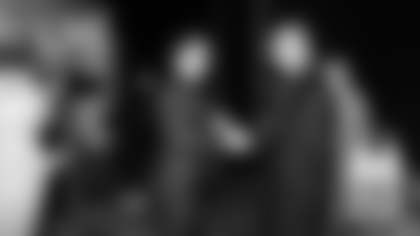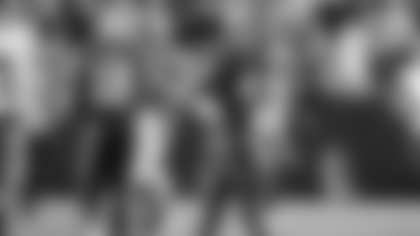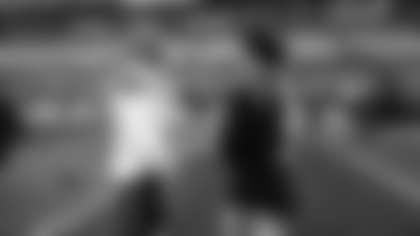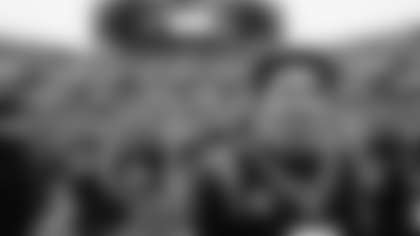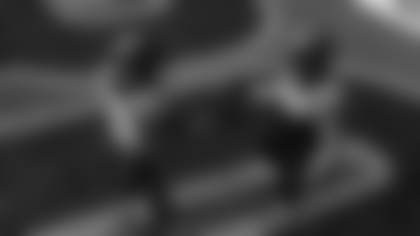CHARLOTTE — There were dozens of signs along the way. Conversations. Looks. Plays made. Hints.
There was blood, and of course sweat. And torn ligaments, and hurt feelings.
For the 2015 Carolina Panthers, a month of training camp that August provided the framework for what would be a historic run, a 15-1 regular season, and a trip to the Super Bowl thanks to a building-shaking night in Bank of America Stadium for the NFC Championship Game.
It wasn't always a smooth camp, as things happened that could have imperiled another team, or killed the momentum built the previous season, before the next one even started.

But the one thing they knew for sure was that something had happened over those weeks in Spartanburg that had set a chain of events in motion.
"He was in a dead-bolt sprint. And I was like, 'Oh, that's different.'" — Jonathan Stewart.
"He said, 'Look, man, if we've got to fight like that every day to get us better, that's what we're going to do.' And I was like, 'Yeah, I already know.'" — Josh Norman.
"When Kelvin went down, I was like, 'Damn, we're going to miss that.'" — Luke Kuechly.
"The only guy that would have made a difference for us in that Super Bowl was someone like Kelvin, and there was nobody like Kelvin available." — Dave Gettleman.
"You know, there were several things that happened early that year that really indicated to me that we were going to be a team to be reckoned with." — Ron Rivera.
And all of those might have been understatements.
Whether it was the MVP quarterback and one of their fieriest defensive players throwing punches at each other (and the quarterback leaning into the fight, rather than trying to escape it), one of their key players sticking his head into the action in a way that left a scar, or someone they were relying on never making it out of camp, the things that happened during that month were things they never could have predicted.
But at the same time, they could kind of see this coming.

The Panthers were building toward this point for years, but that was hard to see when they hit a skid in the middle of the 2014 season and struggled to steer out of it.
They were 3-7-1 at their Week 12 bye, and came out of it with a bad loss to the Vikings. So there was no reason at that point to think something was happening. But then a weird thing happened. By virtue of playing in the NFC South — the messiest division in football, whether its members are playing well or not — the Panthers were still in it.
So when they ripped off four wins to close the season, they were the unlikeliest division champions ever, and snuck into the postseason with a ridiculous 7-8-1 record.
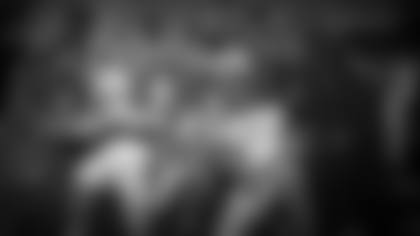
They weren't going to apologize for it, not with the 11-5 Cardinals rolling into Bank of America Stadium for a wild-card game. The Cards had their own issues at that moment, as quarterbacks Carson Palmer and Drew Stanton were lost for the season to injuries, meaning third-stringer Ryan Lindley was starting in a playoff game.
Lindley was picked off twice in the fourth quarter, first by linebacker Luke Kuechly and then by safety Tre Boston, triggering a celebration no one expected, other than the Panthers themselves.
And when wide receiver Jerricho Cotchery came up to Kuechly and Thomas Davis on the bench, there was a recognition and an agreement.
"When Tre picked that ball off in the end zone, the game was over, and I remember being on the sideline and Cotch came up to Thomas and me and said, 'Hey, this team is special. Like we've got an opportunity to be something.'"
For a team that would fall back below .500 for the year the next week with a loss at Seattle in the divisional round, it was a weird time to call a shot.
But it was also prophecy.

Before the Panthers could even get to Spartanburg, though, everything felt a little more heightened. The ramp-up to camp started in April and May.
Guys walked in that spring with a heightened sense of anticipation, and it was reflected on the field.
That was driven by an influx of veterans, who could help immediately. Longtime Bears cornerback Charles Tillman walked in the door with immediate respect, and he walked in talking. They also added an impact safety in Kurt Coleman, a proven left tackle in Michael Oher, and a downfield threat at receiver in Ted Ginn Jr. (not to mention a young linebacker in first-round pick Shaq Thompson, who would serve as a bridge from one era to the next).
"The chippiest OTAs I've ever been around," said Bills general manager Brandon Beane, who was the assistant GM here that season. "Peanut was always talking. You know, iron sharpens iron. That's how you're going to develop it."
And as that continued through the spring, there was a steady building, a constant expectation of what was coming next because that day had been so good for them.
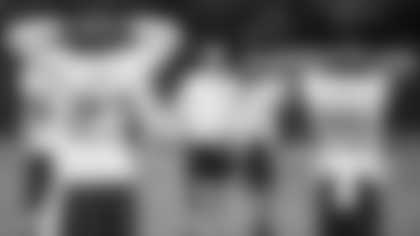
And when real life interjected, they rose to the moment.
Two days before players reported to Wofford College, head coach Ron Rivera's brother Mickey died after a battle with pancreatic cancer.
He knew he had to go, but was torn. He knew what kind of season it might be, knew what they were building on. So he wanted to experience every moment of it. But he knew where he had to be. So he stayed for the first day of practice on July 31, then flew to Reno, Nev., for the funeral, leaving assistant head coach Steve Wilks and a group of the elders in the locker room to take care of things. As a linebacker himself on Mike Ditka's legendary 1985 Bears team, Rivera knew what a team was supposed to look like and how it was supposed to operate.
"Ditka always said, when we took care of things, he always felt good about it," Rivera recalled. "We took ownership, and that's what they did. And then when my brother passed away just before the start of this season, I was going to miss two days. So I got the team captains together and told them, 'Look, guys, I've got to go. I've got to be with the family for a day and a half, but I need you guys to step up, take care of things.' They said, 'Coach, you know what, we got this. We'll take care of it.' I talked to Steve about everything. Steve said the same thing, and he said, 'Ron, we got this. You go be with your family.'
"So I went, and obviously I called to see what's going on and everything like that. They're trying to keep me apprised. But when I got back, (team president) Danny Morrison came to me and said, 'Ron, it was one of the most amazing things, you would have never known you had left. Everything that you did typically, they did on their own. They knew exactly what needed to happen.
"That's probably the one thing that said to me, man, they are ready."

Next-man-up is one of the hoariest of cliches in football, but it also happens to be reality. That year, Luke Kuechly would suffer a concussion in the opener, and AJ Klein replaced him. The fans kept chanting LLLLLLUUUUUUKKKKE when he'd make a tackle, and the team kept stacking wins.
"AJ Klein on the bench," laughed then-defensive coordinator Sean McDermott, now the head coach of the Buffalo Bills. "He was a starter for the other 31 teams. . . . We had a lot of pieces."
And over the course of that camp, they began to show how deep and talented and competitive they were.
The Cam Newton-Josh Norman fight got all the headlines, but there were plenty of other collisions and altercations that summer, one of which left a scar, once the wound finally healed.
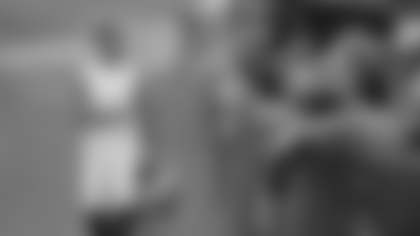
Every day, guys were bringing it. So one morning in the back corner practice field, where no air moved, just hanging there like a blanket of damp, a couple of dudes had had enough.
Thomas Davis laid into Jonathan Stewart during an 11-on-11 inside run period. Since it was Davis, it might have been a little much. But they were also used to it.
"We were on the far field against the woods over there, and it was one of those periods where the offense and the defense had been yapping," Beane recalled. "And then Jonathan Stewart, who doesn't say anything, like he got pissed. Somebody knocked the s--- out of him, hit him hard, he gets back up, and you can see he's like, all right, all right.
"And so next play, he comes through the hole, and Kurt Coleman came down. And it was as violent a collision as you'll see. I mean, he ran over Kurt, and he made Kurt's nose open up big time. It wouldn't stop bleeding, and Kurt had to wear a band-aid the whole season because that thing just wouldn't close up.
"It was crazy, because usually guys are just trying to get your team ready. You're trying not to hurt each other, but you also don't want guys brother-in-lawing it. It was a midseason, playoff-type collision."
Coleman, who remains a handsome man who didn't necessarily appreciate the impromptu cosmetic surgery, remembers it well.
"I mean, TD hit Stew harder than the tempo was calling for. But I didn't see that, so I'm not thinking anything of it," Coleman said. "So the next play, I'm going to fit the gap. And Stew was angry, so he was like, I'm not going to get hit without running hard again, so he runs extra hard. So I was the casualty because of something someone else did.
"I mean, that was par for the course. It was incredibly fun, everyone was competing at a high level, and I think the beauty of it was the defense was never going to try to be outshone by the offense and vice versa. Even within our own position groups, it was a very spirited. Every position group was trying to make their mark. I think that's really what was so special because everyone was developing, everyone was being pushed."

And if he ever forgets it, all Coleman has to do is look in the mirror. He was a mess until Week 2 in Houston, when he finally did enough damage to close it.
"Basically, it wasn't split up enough for them to stitch, and then I finally hit Chris Polk on second down, blew it wide open," Coleman recalled with a laugh. "Roman Harper is looking at me like I'm crazy, and I'm trying to get the call because I can't see, because my visor is all covered in blood.
"Afterward, I come back to the sideline and I say, 'Docs, can we put something on it?' They rushed me in, and they said it was finally flappy enough to stitch. We finally got enough loose skin to sew."
Stewart laughs now when it's mentioned that Coleman may still hold a grudge.
"He should have buckled his chin strap tighter."

Of course, they all had to buckle up for the events of August. 10, because that might have been the signature moment of a camp full of them.
When you've got a Cam Newton on one side and all those dudes on the other side who love to talk, this was probably inevitable.
Davis brought it every day. Tillman fit right in. And Norman was coming into his own, too, as a player and a trash-talker. When you mix in the oppressive heat and humidity, and the lazy air in the back corner of those practice fields, there was a perfect storm that morning.
The short version was, Norman picked Newton off that day and ran it back, and Newton took offense and wasn't about to let the mouthy DB score on him. And he got a shot in, and Norman returned fire (and it was captured perfectly by the late, great David Foster of the Charlotte Observer).
"I didn't see a red jersey. I just saw another person in front of me in opposition," Norman said. "And yeah, one thing led to another."

And it was immediately obvious to everyone that this wasn't a normal camp fight.
"Yeah, when he started chasing Josh, typically there's a jog to it," Stewart recalled. "A quarterback's like, oh man, bad play, right? And they jog and get their conditioning in and basically show that the coaches and the players that, hey man, in the game, I'm chasing this guy down, right?
"But he was in a dead-bolt sprint. And I was like, 'Oh, that's different.' Maybe I should stray over there, too. I don't want anything bad to happen cause again, this was our quarterback, our leader. And he's a passionate guy, but sometimes you've got to protect your guy from himself. You know, when you have a dog leading a pack, sometimes that dog has to have other dogs around him to level off. So that's kind of my mindset when I saw him sprint out to Josh because obviously they were bickering throughout practices and whatnot, and that happens every practice.
"And that sprint is what really set the alarm off for me."
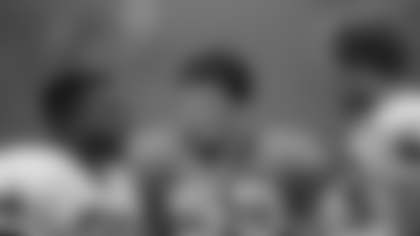
Others reacted differently, like Luke Kuechly, who found a dance partner in Greg Olsen.
"I see Josh pointing at him and yelling at him, and I was like, oh my gosh, here we go, and then Cam went over and hit him," Kuechly said with a laugh. "It's so funny, the dynamic of a training camp fight. Nobody wants to fight anybody. Everyone's tired, everyone's hot, like we'll just get the two guys separated and go back to our huddle. You always try to find somebody. I'll go find Greg, and we'll stand next to each other and act like we're doing something.
"But it's just funny to me that no one has to defend Cam. You look at the picture, he's bigger than everyone. I don't think anybody ever really appreciates how big and powerful and strong Cam is. Him and Pep (Hall of Famer Julius Peppers) are the two most unique guys I've ever played against or played with. So you look at him, and it's like, you're going to be fine."
The question was whether Norman would be. Again, Newton was a large man who had previously been hit by a car on Church Street and was smiling while paramedics worked on him, so it was no surprise that he was flashing his pearly whites while going after Norman.

But the emotions in that instant were real, and it wasn't an immediate hug-it-out.
"I think that one took a minute," Beane said. "There was still respect between the two of them, and I think as long as there's a respect, you don't always have to love and want to hang out with the same person.
"I don't think that day, I don't think they were having lunch together."
The immediate aftermath was another time when Rivera wanted to jump in. It seemed like the thing a coach does when two of his best players decide to fight in the middle of practice.
"I was getting ready to let everybody have and just kind of yell at them," Rivera admitted. "But I had a group of guys come to me and say, 'Hey, coach, we got this.' I said, 'Really?' They said, yeah, we got this, we'll take care of it. And so I didn't get the guys together. I didn't yell at the team. I didn't get after anybody. They did. They took care of it."
And Newton and Norman were together later, and decided they needed to show the world they were fine, so they posed for a picture on social media the next day.
But there was also the understanding that it might not be the last one. Picture, or fight.
"We were in the locker room and he came up to me, and he said, 'Look, man, if we've got to fight like that every day to get us better, that's what we're going to do.' And I was like, 'Yeah, I already know.'" Norman laughed. "It was just understanding where we are with you, you're a dog on your side, I'm a dog on my side, and just understanding each other's level of you know output. We heard all the noise, news outlets, and all the papers and ESPN, so we just had to take a picture. I was like, look, man, let's take a picture and get it out there because people think we don't like each other and that wasn't the case at all.
"It wasn't immediate. It wasn't, it wasn't. It did take a little minute because you got alpha males, and we have egos. It's like another dog walking in your yard. It's going to be a problem. But we saw the backlash of smoke that was getting online, it was like, look man, let's just put this to bed, and we made it right from there."
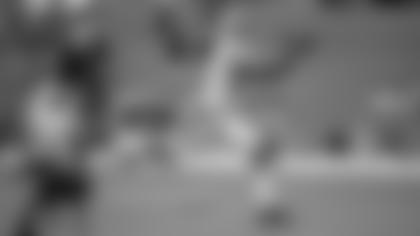
Fast forward nine days, and things got complicated again.
And this wasn't the kind of thing that goes away with a couple of conversations and a tweet.
Panthers general manager Dave Gettleman came into the job in January 2013 with a head start. It's easier to be a GM when you inherit Newton, Kuechly, Davis, Olsen, Stewart, Norman, Ryan Kalil, and Charles Johnson, among others. That's the guts of a good team already (representing all six team captains, a combined 15 All-Pros, 23 Pro Bowls, an MVP, defensive player of the year and Walter Payton NFL man of the year). But just as some people prefer blondes and some like brunettes, Dave Gettleman had a type. He liked them big and loved talking about his Hog Mollies. In his first draft, he built a defensive line from the inside out by using his first two picks on about 650 pounds worth of Star Lotulelei and Kawann Short. In his next draft, he found a gigantic target for Newton in Florida State wide receiver Kelvin Benjamin, who had tight end size and wideout speed (and came back in the third round for five-time Pro Bowl guard Trai Turner).
Benjamin was unique, and in his first season, he caught 73 passes for 1,008 yards and nine touchdowns. On a team that already had weapons, he became one quickly.
And he rolled into his second training camp in the best shape of his career, which Gettleman remembers well.
"Obviously, he had a great rookie season, and we're all licking our chops because you couldn't cover him," Gettleman said. "He was in the best shape of his career. He was 238 pounds, 6-5 and change and just a human vacuum cleaner."
So, for lack of a better word, what happened on Aug. 19 just sucked.
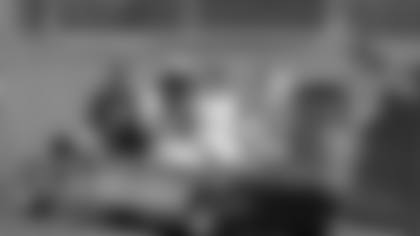
During a joint practice with the Dolphins, Benjamin went down in a heap, torn ACL, the kind of injury that you realize is bad from the sounds you hear and the look on his face as he's being carted off the field.
"He ran a slant, popped his knee, and it was like, 'Damn, what are we going to do?'" Kuechly recalled.
"It was definitely sad to see KB go down in training camp because he had turned the corner with being the lead dog in our group," Cotchery said. "Everything was going to be predicated upon him week in and week out dominating the guy that was in front of him, and we all were going to get ours as it came to us."
But when you took a lead dog out of the group, no one was sure what the rest of the pack was going to be able to do.
They had the aging but still-productive Cotchery. They had top-end speed in Ted Ginn Jr., but he'd often leave plays on the table since his hands didn't always match his feet. They drafted another big body in Devin Funchess and had Philly Brown as well.
For all the stars that were scattered across the Panthers' roster, the receivers' room without Benjamin was an odd lot. There was even a segment on the NFL Network that declared them the worst receiving group in the league.
"We weren't really concerned with the outside noise," Cotchery said. "We knew we were going to be a formidable offense to deal with come the season."
That would become another bit of prophecy from Cotchery, but it took a roundabout path and a lot of adaptation to get there.

Without a true No. 1 receiver, they doubled down on the run game and a No. 1 tight end. Olsen put up a career-high 1,104 yards that year, the second of his three straight 1,000-yard seasons (the first tight end in league history to do that). And that's a comfortable fallback position, but you need something out of the receiver position, no matter how good the tight end is.
Of course, it helps when there's a Superman at quarterback.
"I mean, this kid was about to erupt, right? And Cam and the chemistry that he had with him, it was just going to be that year where they were going to showcase to the world who they really were, and unfortunately, Kelvin goes down," Stewart said. "And what that did was it ignited a whole different process where everyone on that team had to elevate their game, whether you were offensive line, running back, receiver, and obviously Cam's game elevated because now he had to see the field differently. Luckily, he has Greg Olson as his safety valve. There was a confidence that we had on the offensive side of the ball."
"The thing that we've always had in Carolina when I was playing was Greg, and Greg's a one," Kuechly said. "You'd say he's whatever, but he's a No. 1 wide receiver.
"So when Kelvin went down, I was like, 'Damn, we're going to miss that.' But Greg will be able to do everything that a No. 1 wide receiver can do, regardless of the fact that his position is tight end, right?"
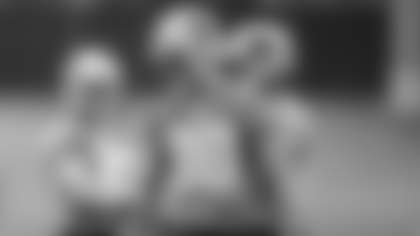
But it was still a puzzle, one that offensive coordinator Mike Shula was in charge of sorting the pieces of. And Shula wasn't a universally hailed offensive wizard; he wasn't one of those young offensive minds who get head coaching jobs. He was a lifer. But the job he did in 2015 was still impressive, because conducting an orchestra is a skill too, no matter how many great players are sitting there.
"Shula was off the charts that year," Gettleman said.
Part of that was because of the remaining cast. Part was the way they responded collectively.
"We wondered who was going to be the next man up, but what's interesting, though, is that's exactly what happened," Rivera said. "The guys just kind of rounded each other up and just kept going.
"You know you've accomplished something when that's something that you can continue, when losing a player of that quality is not going to devastate you."
That doesn't mean they didn't look for help.
Gettleman and Beane huddled with the personnel staff in the moments after the diagnosis (the same way they did when they quickly made a trade for Hall of Famer Jared Allen when Johnson was injured in Week 3).
But as they looked at the options available in free agency in the middle of August, they didn't see a fit.

"There was just nobody there that we thought would really make a difference for us," Gettleman said. "There just wasn't anybody out there, and I know because I was getting killed for it too. People are crushing my ass. Oh, he ain't making a move.
"And I told the guys in the media one day, I said, 'I'm not going to sign some old bastard that can't play anymore.' I'm not doing it. This guy might have been in the Pro Bowl, but it was 10 years ago. At one point in my life, I weighed 218, and I could bench press 375. That was a long time ago. So we knew what we had. And offensively, Mike was one step ahead of the posse the whole year."
Of course, there were moments later in the year when they did wonder. Even in the Super Bowl, when the Broncos' defense locked them down, some wondered about what might have been (especially after Cotchery caught it, but officials disagreed and may have changed the course of history).
But Gettleman was resolute that not making a move was the only answer at that time, because of what he was seeing every day.
"The only guy that would have made a difference for us in that Super Bowl was someone like Kelvin," he said. "And there was nobody like Kelvin available."
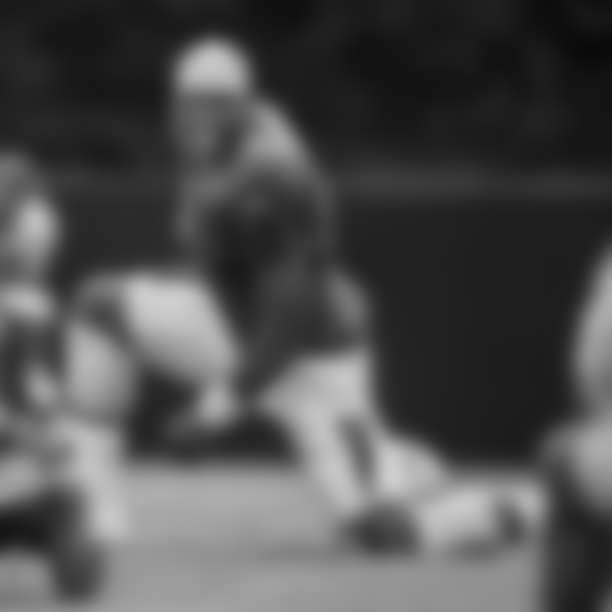
The praise for Shula's ability to adapt was reflexive, and he certainly did a good job (they scored a league-high 500 points, 31.3 per game). But mostly, what they had was Newton, who did things that year that quarterbacks just didn't do.
He threw for 3,837 yards, with 35 touchdowns and just 10 interceptions. He also ran for 636 yards and 10 touchdowns. They were just cartoon numbers, from a superhero-sized quarterback.
When it was time to vote for the MVP, Newton got 48 of the 50 votes (Tom Brady and Carson Palmer got one each). The margin was as laughable as many of their games.
"I remember Thomas and I were sitting on the bench and we were scoring a million points that year," Kuechly said with a grin. "We're doing it all kinds of ways. He was running over guys, he was running through guys, he was dancing on people. He was doing literally whatever he wanted. And it was just, it was fun to watch.
"When he's as big as he is and he's athletic as he is and the personality that he had and how well we were playing, he's like the big kid at recess that no one can push. All these DBs or linebackers are trying to push him, and he's 5 inches taller than all of them. And it's funny. In the NFC Championship Game, he jumps over Kalil. He was just doing things that you're not used to seeing from a quarterback."
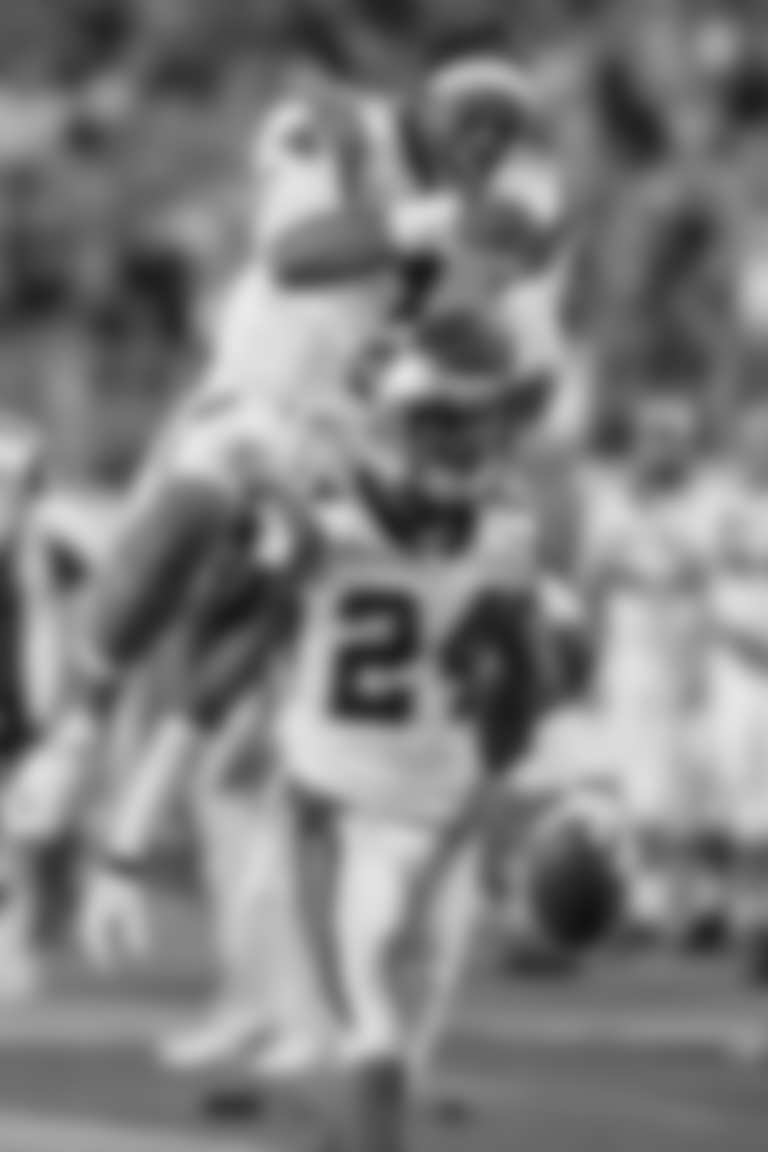
No one else in the league had a Cam Newton that year.
But when they think back on that season, they also know that no one else had a Josh Norman pushing a Cam Newton. Or a Luke Kuechly who could run routes for opposing quarterbacks better than his receivers ran them. Or a group of complementary players, who filled in around a ridiculous array of stars. Jared Allen, who arrived in Week 4 for the final 12 games of his Hall of Fame career, said his only goal when he arrived in Carolina was "to fit into Luke Kuechly's defense." But it also took Kurt Coleman being willing to disfigure his own face when Thomas Davis lit Jonathan Stewart up the play before in practice.
All those things came together at once.
And as they think back on it now, they all go back to those sweaty days in Spartanburg, where they fought, where they sweated, and where they bled.
But mostly, where they competed with each other, creating a team that was capable of historic things.
"We fed families that year just off of how competitive we were," Norman said. "Don't even think about the games. The game wasn't hard. The games were the practice. Practice was the games because you may not even dress out that week if somebody shows you up. Because it was that hard, we went through it as if it were a game every day.
"So when we showed up on Sundays or Monday night or Thursday, it was just us putting on our Sunday best and taking pictures on the sideline, because we already knew we're going to win because of how we prepared. I think that's the best part about it. We were able to have such a magical season because of how hard we worked, and a lot of people didn't see it."
View top photos of the quarterback's season.
